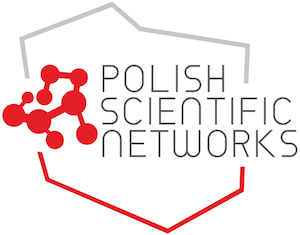Opening lecture
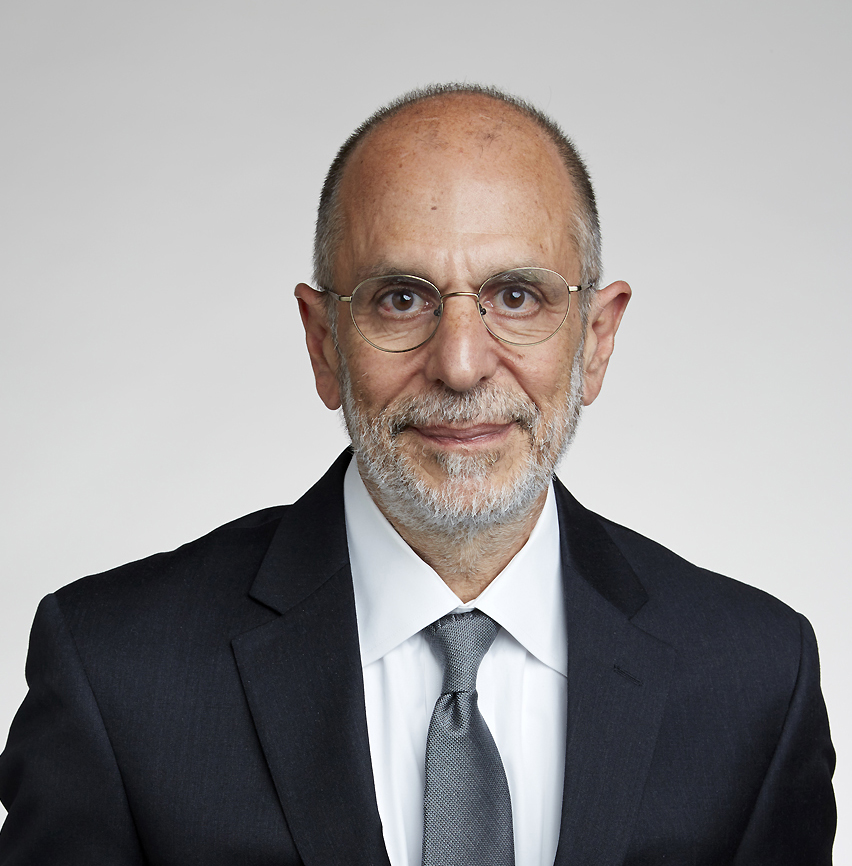 Robert J. Cava, the Russell Wellman Moore Professor of Chemistry at Princeton University was Chair of the Department of Chemistry from 2004-2010 and was Acting Director of the Princeton Materials Institute from 2001-2002. Cava’s research, in solid state chemistry, emphasizes the relationships between chemistry, crystal structure, and electronic and magnetic properties of non-molecular solids. Superconductors, magnetic materials, thermoelectrics, topological insulators, geometrically frustrated magnets, and correlated electron systems are his current interests. He received his Ph.D. in Ceramics from MIT in 1978, after which he was a Postdoctoral Fellow at the National Institute of Standards and Technology. He began at Princeton in 1996 after working at Bell Laboratories for 17 years, where he was a Distinguished Member of the Technical Staff. He is an active board committee of the Royal Society. He is a Fellow of the American Physical Society, the American Ceramic Society, and the Neutron Scattering Society of America, and a member of the U.S. National Academy of Sciences. He has received a variety of awards for his research, and at Princeton he has been a recipient of the President’s Award for Distinguished Teaching, the Phi Beta Kappa Teaching Award and three teaching awards from the Princeton Engineering Council. His hobby is amateur astronomy.
Robert J. Cava, the Russell Wellman Moore Professor of Chemistry at Princeton University was Chair of the Department of Chemistry from 2004-2010 and was Acting Director of the Princeton Materials Institute from 2001-2002. Cava’s research, in solid state chemistry, emphasizes the relationships between chemistry, crystal structure, and electronic and magnetic properties of non-molecular solids. Superconductors, magnetic materials, thermoelectrics, topological insulators, geometrically frustrated magnets, and correlated electron systems are his current interests. He received his Ph.D. in Ceramics from MIT in 1978, after which he was a Postdoctoral Fellow at the National Institute of Standards and Technology. He began at Princeton in 1996 after working at Bell Laboratories for 17 years, where he was a Distinguished Member of the Technical Staff. He is an active board committee of the Royal Society. He is a Fellow of the American Physical Society, the American Ceramic Society, and the Neutron Scattering Society of America, and a member of the U.S. National Academy of Sciences. He has received a variety of awards for his research, and at Princeton he has been a recipient of the President’s Award for Distinguished Teaching, the Phi Beta Kappa Teaching Award and three teaching awards from the Princeton Engineering Council. His hobby is amateur astronomy.
Department of Chemistry, Princeton University
Closing lecture
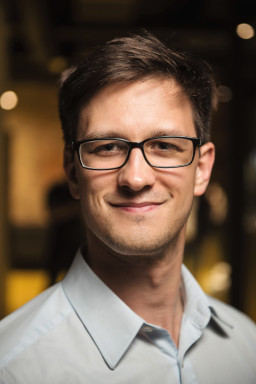 Jakub Bochinski, PhD – astronomer, designer and constructor of robotic telescopes, discoverer of several new planets outside of the Solar System, specialist in the areas of science communication, R&D management and talent development for high-tech industries.
Jakub Bochinski, PhD – astronomer, designer and constructor of robotic telescopes, discoverer of several new planets outside of the Solar System, specialist in the areas of science communication, R&D management and talent development for high-tech industries.
Jakub pursued his academic career at University College London and The Open University in Great Britain, publishing in top journals such as Nature and the Astrophysical Journal. In Poland, he managed large R&D centers in Copernicus Science Centre and Sollers Consulting. Jakub served also as an advisor to the European Space Agency and a head of its ESERO office in Poland. He co-founded the Polonium Foundation, which aims to network polish scientists around the world. In his free time, Jakub leads the Science Advocates Association, a collaboration of 50 top science communicators in Poland, and runs a trademark course in astronomy at Akademeia Tutorial College. As an avid communicator, Jakub loves sharing his experiences – in form of over a thousand talks and workshops presented worldwide, including at such events as infoShare, TEDx, Women in Tech Summit and BBC Stargazing Live.
Association of Science Spokesmen
Discussion panel
“Innovation: what does it mean?”
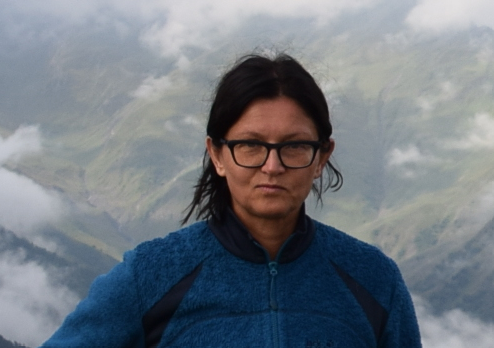 Adriana Zaleska-Medynska is a Professor in Chemical Technology at the University of Gdansk and head of the Department of Environmental Technology. She obtained a Ph.D. in 2000 in the field of chemical technology at Gdansk University of Technology (Poland). Following appointment as Visiting Scientist at University of Utah (UT, USA) and California Institute of Technology (CA, USA), she was appointed as adjunct at Faculty of Chemistry at Gdansk University of Technology. During this time she started to study correlation between surface properties and visible light induced photoactivity of TiO2-based materials. She completed D.Sc. (habilitation) in 2009 and in 2012 she became a head of the new research group at University of Gdansk followed by promotion to Full Professor at the same university in 2014. She is a co-author of 116 papers, 1 book, 16 chapters in books and monographs, 12 patents, 5 patent applications, 177 short communications. Her current interests concern functional material synthesis and characterization, heterogeneous photocatalysis, environmental technology, air treatment and nanotechnology.
Adriana Zaleska-Medynska is a Professor in Chemical Technology at the University of Gdansk and head of the Department of Environmental Technology. She obtained a Ph.D. in 2000 in the field of chemical technology at Gdansk University of Technology (Poland). Following appointment as Visiting Scientist at University of Utah (UT, USA) and California Institute of Technology (CA, USA), she was appointed as adjunct at Faculty of Chemistry at Gdansk University of Technology. During this time she started to study correlation between surface properties and visible light induced photoactivity of TiO2-based materials. She completed D.Sc. (habilitation) in 2009 and in 2012 she became a head of the new research group at University of Gdansk followed by promotion to Full Professor at the same university in 2014. She is a co-author of 116 papers, 1 book, 16 chapters in books and monographs, 12 patents, 5 patent applications, 177 short communications. Her current interests concern functional material synthesis and characterization, heterogeneous photocatalysis, environmental technology, air treatment and nanotechnology.
University of Gdansk
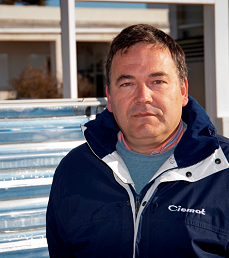 Since 1990 he works at the Plataforma Solar de Almeria (PSA-CIEMAT) in all the EU R&D projects linked to the Solar Treatment of Water, being involved in 23 International, 30 National R&D Projects and different Contracts with Private Companies.
Since 1990 he works at the Plataforma Solar de Almeria (PSA-CIEMAT) in all the EU R&D projects linked to the Solar Treatment of Water, being involved in 23 International, 30 National R&D Projects and different Contracts with Private Companies.
Since 2006, He has been Director or Co-Director of Joint Research Center (Univ. Almería-CIEMAT) of R&D in Solar Energy (CIESOL http://www.ciesol.es). In 2012-2017, he was Director of Plataforma Solar de Almeria (www.psa.es) and he has been Head of Research Unit at CIEMAT since 2012.
He is author of 1 book and co-author of 18 books as well as >50 chapters in others. He has also co-authored more than 250 publications in indexed international journals, and more than 350 contributions to different International Congresses and 5 patents. He has participated in >90 Workshops and Conferences and participated as speaker in >60 specialized courses and masters. He has directed 15 PhD Thesis. >17000 cites, h-index: 75.
Ass. editor Environmental Chemistry Letters (Springer) and Photochemical and Photobiological Sciences. (RSC Publishing) up to now. Journal of Advanced Oxidation Technologies (Sci.& Technol. Network, Inc.; 2008-2016). Member of editorial board: Catalysis Today (Elsevier), up to now.
The Jury’s Grand Prix of “European Grand Prix for Innovation Awards”. 11 December 2004, Mónaco. http://www.european-grandprix.com/index_en.htm.
Jaime I Price (Most important in science in Spain) in Environmental Protection, 2011. http://www.fvea.es/medioambiente.html.
University of Almería-CIEMAT
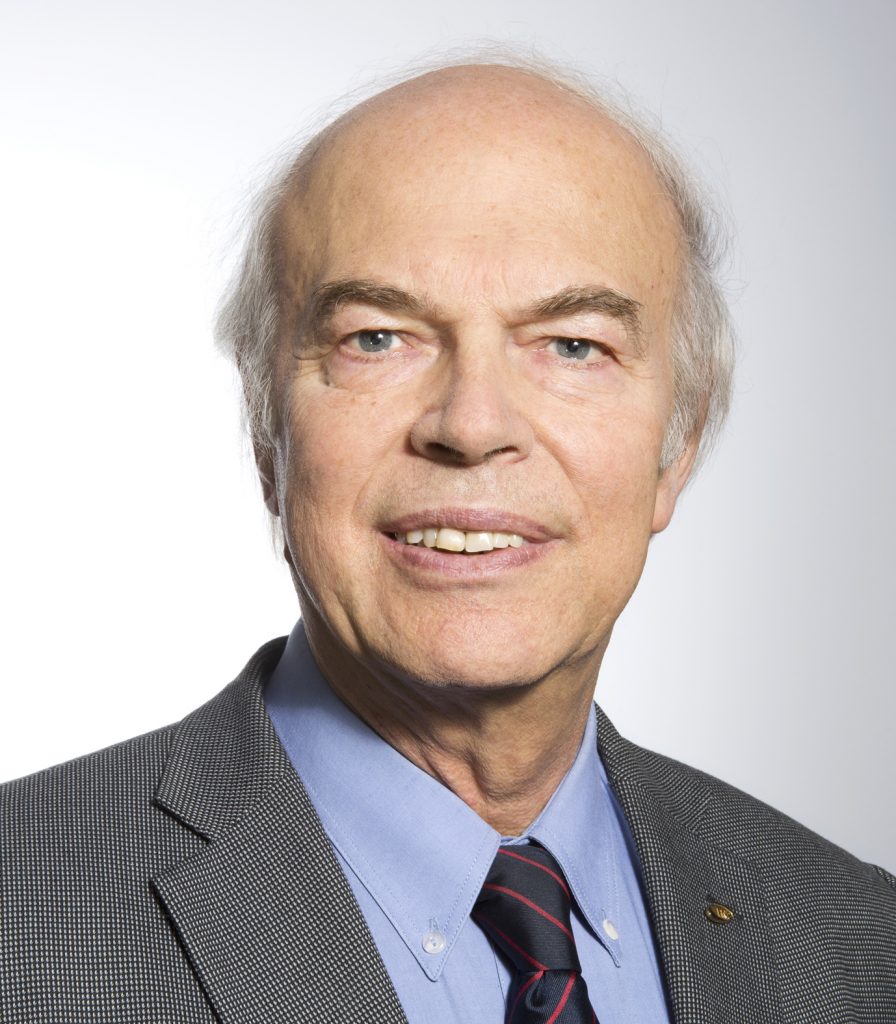
Born 11 April 1947 in Szczekociny. A specialist in chemical engineering, he is a graduate of Warsaw University of Technology (WUT)’s Faculty of Chemistry (1969) and the University of Warsaw’s Faculty of Mathematics and Mechanics (1975). In 1976 he completed his doctorate at WUT, in 1978-79 he completed a postdoctoral visit to the University of Houston, and in 1981 he gained his habilitation degree. He was made a full professor in 1996. Prof. Gradoń works at the WUT Faculty of Chemical and Process Engineering, where he served as dean between 1999 and 2005. He was a Fulbright scholarship holder at the University of Cincinnati (1993-94), and has been visiting professor at a number of institutions internationally: University of Buffalo (USA), Delft University of Technology Netherlands), University of Salzburg (Austria), and University of Hiroshima and Doshisha University (Japan). His research is on the mechanics of aerosols and using the fundamental mechanisms of processes of momentum, mass and energy to explain the phenomena taking place in multi-phase systems. His original hypotheses, the result of research of a fundamental character, have led to innovative technologies being implemented in production. These solutions are focused primarily on the subject of protection of health, in particular that of people in the work environment (related to e.g. protection of the respiratory system, treatment of drinking water, construction of personal inhalers and collective inhalers for cleansing the lungs in mines, dust reduction in areas in which mining combines are in use and, lastly, initiation of production of filters reducing pollution from diesel engines. He is the author or co-author of 15 monographs and chapters in monographs of international scope, seven academic textbooks, over 180 articles in renowned scientific journals and over 200 reports in international and domestic conference materials, as well as the author or co-author of 64 patents. The technical solutions based on his research are or have been applied in many Polish and international companies and enterprises (e.g. vacuum distillation of fatty acids for the Institute of Industrial Chemistry and the Pollena company, water and other fluids filter technology for Microspun Products, implementation of production of CCV filters for diesel engines for Cummins Filtration (USA), preparation for implementation of a powder inhaler for GlaxoSmithKline, and membrane filters for cleaning food products for Biodesign (UK). Prof. Gradoń is active in a number of scientific advisory and editorial boards, and is a member of bodies including the International Society Aerosols in Medicine, of which he was a member of the board in 19919-93, Gesellschaft für Aerosolforschung (since 2004 also a member of the board) and the American Filtration Society. Editorial boards include that of the Journal of Aerosols in Medicine, Chemical and Process Engineering, International Journal Occupational Safety and Ergonomics and Advanced Powder Technology (Japan). He is the winner of many awards for his scientific work. Including the Marian Smoluchowski Award in 1989 (prize given by the International Society for Aerosol Research in Vienna); Rockefeller Foundation Prize for work on the role of surfactant in process of gaseous exchange in the lungs: Gold Medal at the EUREKA International Innovation Exhibition in Brussels in 1998; Japan Society for Promotion of Sciences in 2001 (for the automised sequence for filter production in cleaning water and other fluids and implementation of production on an industrial scale); title of Cummins Filtration Professor in 2006 (awarded by industrial corporations, in this case the American company Cummins, a global producer of diesel engines) for achievements in filtration and development of new technologies used for filtration of fuel, air and exhaust fumes. In 2006 he was awarded the Prize of the Foundation for Polish Science. Decorated with honours including the Gold Cross of Merit (1993), the Medal of the Commission of National Education (1993) and the Knight’s Cross of the Order of Polonia Restituta. Member of the FNP Council since September 2012.
 Robert J. Cava, the Russell Wellman Moore Professor of Chemistry at Princeton University was Chair of the Department of Chemistry from 2004-2010 and was Acting Director of the Princeton Materials Institute from 2001-2002. Cava’s research, in solid state chemistry, emphasizes the relationships between chemistry, crystal structure, and electronic and magnetic properties of non-molecular solids. Superconductors, magnetic materials, thermoelectrics, topological insulators, geometrically frustrated magnets, and correlated electron systems are his current interests. He received his Ph.D. in Ceramics from MIT in 1978, after which he was a Postdoctoral Fellow at the National Institute of Standards and Technology. He began at Princeton in 1996 after working at Bell Laboratories for 17 years, where he was a Distinguished Member of the Technical Staff. He is an active board committee of the Royal Society. He is a Fellow of the American Physical Society, the American Ceramic Society, and the Neutron Scattering Society of America, and a member of the U.S. National Academy of Sciences. He has received a variety of awards for his research, and at Princeton he has been a recipient of the President’s Award for Distinguished Teaching, the Phi Beta Kappa Teaching Award and three teaching awards from the Princeton Engineering Council. His hobby is amateur astronomy.
Robert J. Cava, the Russell Wellman Moore Professor of Chemistry at Princeton University was Chair of the Department of Chemistry from 2004-2010 and was Acting Director of the Princeton Materials Institute from 2001-2002. Cava’s research, in solid state chemistry, emphasizes the relationships between chemistry, crystal structure, and electronic and magnetic properties of non-molecular solids. Superconductors, magnetic materials, thermoelectrics, topological insulators, geometrically frustrated magnets, and correlated electron systems are his current interests. He received his Ph.D. in Ceramics from MIT in 1978, after which he was a Postdoctoral Fellow at the National Institute of Standards and Technology. He began at Princeton in 1996 after working at Bell Laboratories for 17 years, where he was a Distinguished Member of the Technical Staff. He is an active board committee of the Royal Society. He is a Fellow of the American Physical Society, the American Ceramic Society, and the Neutron Scattering Society of America, and a member of the U.S. National Academy of Sciences. He has received a variety of awards for his research, and at Princeton he has been a recipient of the President’s Award for Distinguished Teaching, the Phi Beta Kappa Teaching Award and three teaching awards from the Princeton Engineering Council. His hobby is amateur astronomy.
Department of Chemistry, Princeton University
“Mentoring”
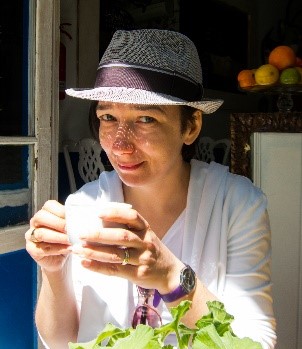 Joanna Niedziółka-Jönsson, chemist, since 2012 leader of the Surface Nanoengineering research group at the Institute of Physical Chemistry, Polish Academy of Sciences. Her scientific interests are focused on analytical chemistry, and in particular surface modification of electrodes with the aim of creating new chemical and biochemical sensors. For this purpose, it is necessary to search for new materials and / or modify their surface properties and apply appropriate detection methods. The synthesis and modification of metallic nanoparticles is of particular importance because these can be used as optical signal transducers due to their localized surface plasmon resonance, connecting chemical processes with detection techniques such as fluorescence microscopy, UV-spectrophotometry or surface-enhanced Raman spectroscopy. Lately much of her work has been directed to the study of plasmonic properties of nanomaterials to expand this toolbox. Dr. Niedziółka-Jönsson is co-author of more than 80 publication, 5 patents, a recipient of scholarships from the Foundation for Polish Science, the Ministry of Science and Higher Education and was awarded with the Wojciech Świętosławski prize of 2nd degree in 2017.
Joanna Niedziółka-Jönsson, chemist, since 2012 leader of the Surface Nanoengineering research group at the Institute of Physical Chemistry, Polish Academy of Sciences. Her scientific interests are focused on analytical chemistry, and in particular surface modification of electrodes with the aim of creating new chemical and biochemical sensors. For this purpose, it is necessary to search for new materials and / or modify their surface properties and apply appropriate detection methods. The synthesis and modification of metallic nanoparticles is of particular importance because these can be used as optical signal transducers due to their localized surface plasmon resonance, connecting chemical processes with detection techniques such as fluorescence microscopy, UV-spectrophotometry or surface-enhanced Raman spectroscopy. Lately much of her work has been directed to the study of plasmonic properties of nanomaterials to expand this toolbox. Dr. Niedziółka-Jönsson is co-author of more than 80 publication, 5 patents, a recipient of scholarships from the Foundation for Polish Science, the Ministry of Science and Higher Education and was awarded with the Wojciech Świętosławski prize of 2nd degree in 2017.
Institute of Physical Chemistry PAS
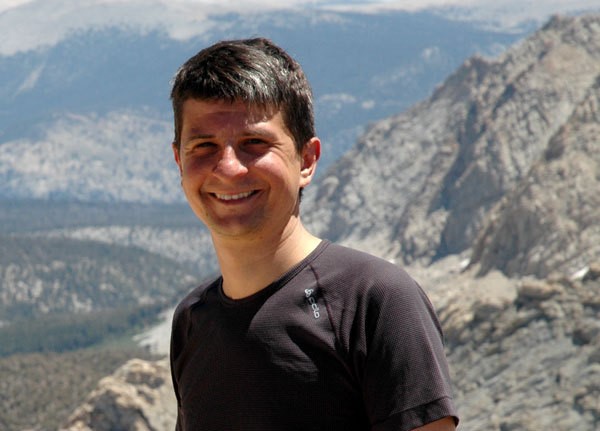 Maciej Wojtkowski (b.1975) is active in the field of biomedical imaging. His research interest includes optical coherence tomography and low coherence interferometry applied to biomedical imaging. Maciej Wojtkowski has significant impact on development of Fourier domain OCT (FdOCT) technique. The first FdOCT instrument for in vivo retinal imaging was designed and constructed by dr Wojtkowski and his colleagues from the Medical Physics Group at Nicolaus Copernicus University Poland in 2001. Maciej Wojtkowski also contributed in development and construction of three clinical prototype high speed and high-resolution OCT instruments which are in use in ophthalmology clinics: in Collegium Medicum in Bydgoszcz, Poland, New England Eye Center, Boston, USA, and UPMC Pittsburgh. He is an author of more than 160 publications including 100 full papers in peer reviewed journals. During his academic career Maciej Wojtkowski served short internships in Vienna University and University of Kent. He also worked for two years as postdoctoral fellow in joint project between Massachusetts Institute of Technology and New England Eye Center. Currently prof Wojtkowski is a head of the Department of Physical Chemistry of Biological Systems at Institute of Physical Chemistry of the Polish Academy of Sciences where he also leads his own research team (Physical Optics and Biophotonics Group).
Maciej Wojtkowski (b.1975) is active in the field of biomedical imaging. His research interest includes optical coherence tomography and low coherence interferometry applied to biomedical imaging. Maciej Wojtkowski has significant impact on development of Fourier domain OCT (FdOCT) technique. The first FdOCT instrument for in vivo retinal imaging was designed and constructed by dr Wojtkowski and his colleagues from the Medical Physics Group at Nicolaus Copernicus University Poland in 2001. Maciej Wojtkowski also contributed in development and construction of three clinical prototype high speed and high-resolution OCT instruments which are in use in ophthalmology clinics: in Collegium Medicum in Bydgoszcz, Poland, New England Eye Center, Boston, USA, and UPMC Pittsburgh. He is an author of more than 160 publications including 100 full papers in peer reviewed journals. During his academic career Maciej Wojtkowski served short internships in Vienna University and University of Kent. He also worked for two years as postdoctoral fellow in joint project between Massachusetts Institute of Technology and New England Eye Center. Currently prof Wojtkowski is a head of the Department of Physical Chemistry of Biological Systems at Institute of Physical Chemistry of the Polish Academy of Sciences where he also leads his own research team (Physical Optics and Biophotonics Group).
Nicolaus Copernicus University Poland
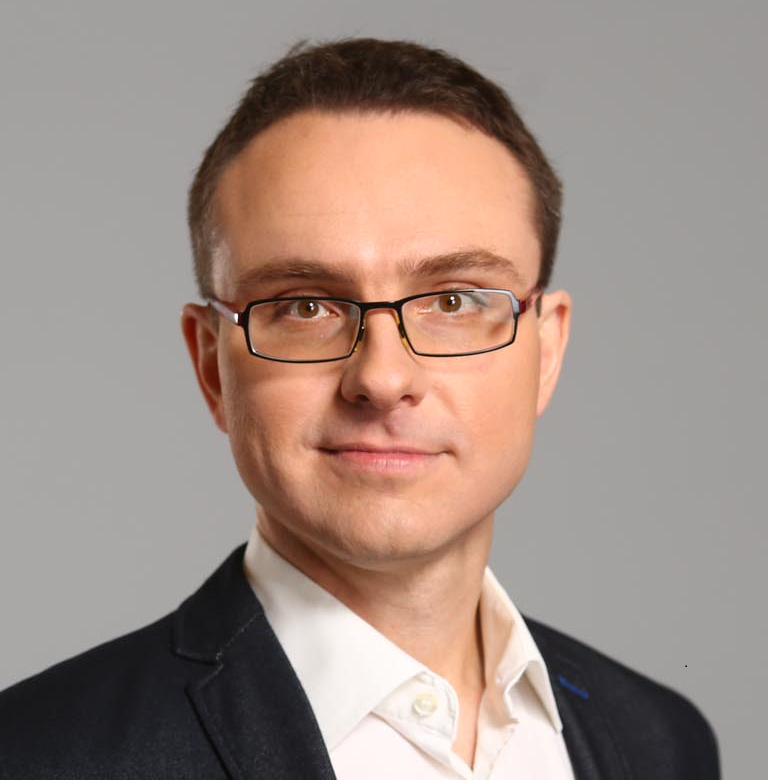
Janusz Marek Bujnicki, Professor of Biology, head of a research group in the International Institute of Molecular and Cell Biology in Warsaw, Poland. His research combines bioinformatics, structural biology, and synthetic biology, and currently focuses on RNA structure determination and design. His scientific achievements include the development of methods for computational modeling of protein and RNA 3D structures, discovery and characterization of enzymes involved in RNA metabolism, and engineering of proteins with new functions. Author of > 300 publications, cited ~9,000 times. Member of the Polish Academy of Sciences, EMBO, and Academia Europaea. Graduated from the Leadership Academy for Poland. Has been involved in Citizens of Science, the Young Academy of the Polish Academy of Sciences, and the Science Policy Committee (KPN). Member of the Committee for the Evaluation of Science (KEN). Executive editor of Nucleic Acids Research. Chair of the University Council at the University of Warsaw. Member of the Group of Chief Scientific Advisors within the European Commission’s Scientific Advice Mechanism. Poland’s representative in the European Science Advisors Forum (ESAF). The “founding father” of PSN.
International Institute of Molecular and Cell Biology in Warsaw, Poland
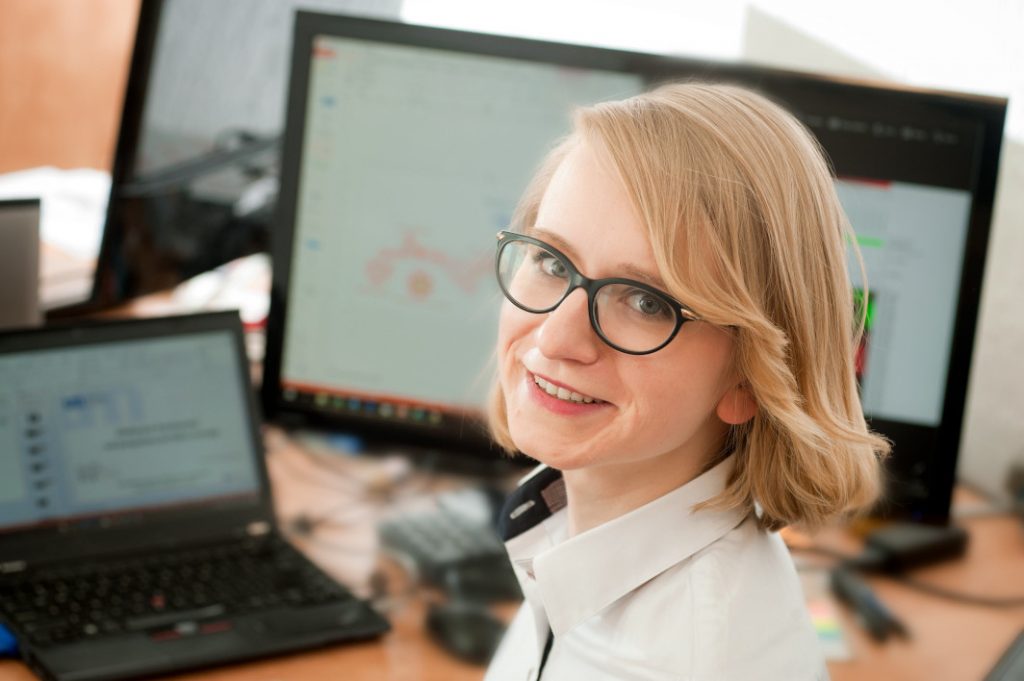 Beata Małachowska is a 4th year PhD student at the Department of Biostatistics and Translational Medicine (Medical University of Lodz, Poland) under supervision of prof. Wojciech Fendler. She also graduated from Post-Graduate School of Molecular Medicine (Medical University of Warsaw, Poland).
Beata Małachowska is a 4th year PhD student at the Department of Biostatistics and Translational Medicine (Medical University of Lodz, Poland) under supervision of prof. Wojciech Fendler. She also graduated from Post-Graduate School of Molecular Medicine (Medical University of Warsaw, Poland).
Her scientific work started in 2011 at the Polish Registry for Pediatric and Adolescent Diabetes project headed by prof. Wojciech Młynarski. Now, she is a principal investigator of PRELUDIUM grant funded by National Science Centre and Scientific grant from Diabetes Poland. Also, she participates in many external scientific projects as data analyst i.a. for Dana-Farber Cancer Institute (Harvard Medical School). She is an author of 35 research publications indexed in Medline including ones in prestigious Nature Communications and Science Translational Medicine.
After graduation, in 2014, she received i.a. Polish Student Nobel Prize at Medical Sciences, then in 2017, Scholarship of the Polpharma Scientific Foundation, in 2018, L’Oreal-UNESCO for Women in Science Poland, and in 2019, START Scholarship from Foundation for Polish Science.
Department of Biostatistics and Translational Medicine (Medical University of Lodz, Poland)
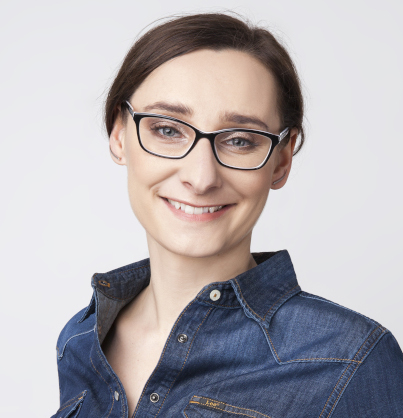
Krystyna Malińska, an environmental engineer, works as a researcher and an academic lecturer at the Faculty of Infrastructure and Environment at Częstochowa University of Technology. She graduated from Cracow University of Agriculture (MSc in Food technology), Silesian University (MSc in Business English), Częstochowa University of Technology (PhD in Environmental Engineering) and University of Warsaw (Postgraduate studies on intellectual property rights). She is also a Fulbright Scholar, a USDA Norman Borlaug Program fellow and a beneficiary of Top 500 Innovators Program.
Her work focuses mainly on research in the field of environmental engineering and organic and vegan agriculture. Krystyna’s interests also include R&D project management, intellectual property rights, commercialization of scientific results and English for scientific communication. Currently, Krystyna is involved in two Horizon 2020 research projects: Organic+ (2018-2022 https://organic-plus.net/) and utri2Cycle (2018-2022 https://www.nutri2cycle.eu/).
Through teaching courses and doing research Krystyna tries to encourage students to search for passion and help them to find their own career path. This is also the mission of the TopMinds training and mentoring program for students (www.topminds.pl) which she has been coordinating together with the alumni from Top 500 Innovators and Fulbright programs. Krystyna is also actively engaged in promoting the academia-industry cooperation through the initiatives of the Association of Top 500 Innovators and consultations for the Ministry of Science and Higher Education, the National Center for Research and Development and European Commission.
Częstochowa University of Technology
Vicepresident of the Association of Top 500 Innovators
”Artificial intelligence – threat or opportunity?”
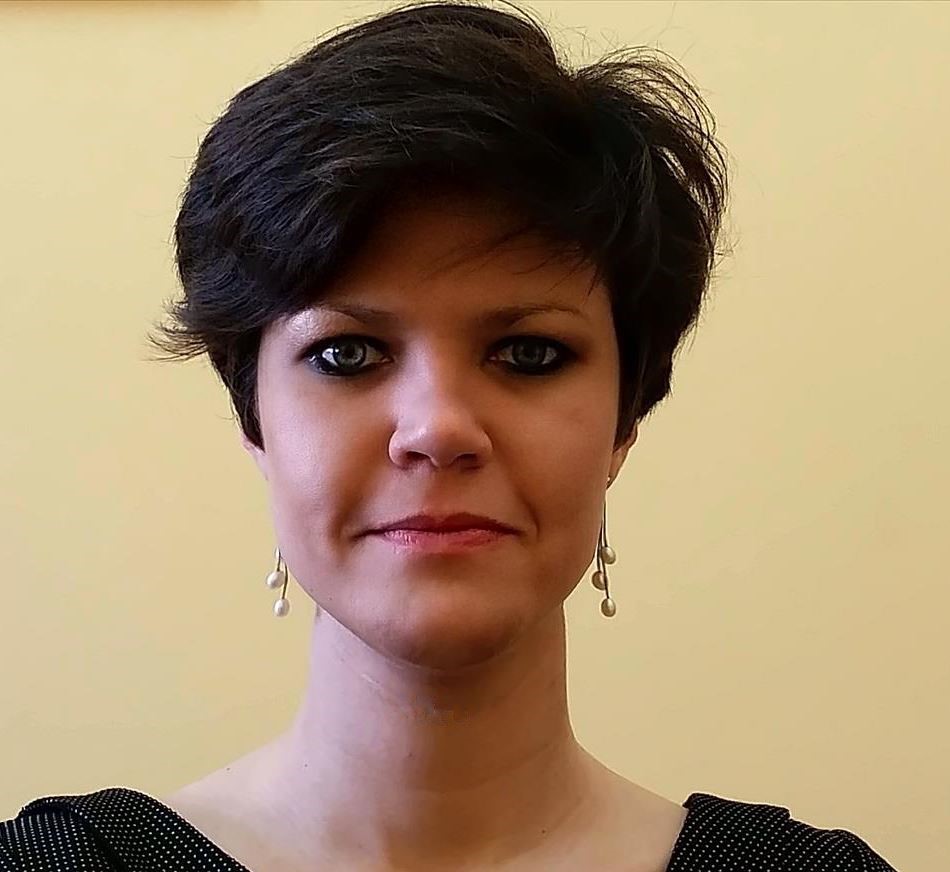 Dr. Anna Fabijańska, Ph.D., D.Sc. (born in 1982) is an Associate Professor in computer science at the Institute of Applied Computer Science of the Lodz University of Technology, Poland where she is also holding the position of the Institute’s vice director for the development. She received her master of engineering degree (2006), doctoral degree (2007) and habilitation degree (2013) in computer science from the Faculty of Electrical, Electronic, Computer and Control Engineering of the Lodz University of Technology. She also gained her scientific experience abroad at the University of Kent (UK), Claude Bernard University Lyon 1 (France) and University of Clermont Auvergne (France).
Dr. Anna Fabijańska, Ph.D., D.Sc. (born in 1982) is an Associate Professor in computer science at the Institute of Applied Computer Science of the Lodz University of Technology, Poland where she is also holding the position of the Institute’s vice director for the development. She received her master of engineering degree (2006), doctoral degree (2007) and habilitation degree (2013) in computer science from the Faculty of Electrical, Electronic, Computer and Control Engineering of the Lodz University of Technology. She also gained her scientific experience abroad at the University of Kent (UK), Claude Bernard University Lyon 1 (France) and University of Clermont Auvergne (France).
Her scientific interests focus on digital image processing and analysis, machine vision and artificial intelligence (especially deep learning). In particular, they concern the development of the dedicated image processing pipelines for computer-aided diagnosis systems and applications of computer vision in various fields of science and industry. She has authored/co-authored over 100 scientific papers which have been cited over 700 times.
She was a beneficiary of the Ministry of Science and Higher Education fellowship for outstanding young scientists in the years 2013-2015, a beneficiary of the Foundation for Polish Science (FNP) START fellowship in 2011 and the leader of scientific grants including the project within the framework of the Iuventus Plus programme in the years 2013-2015. Since 2016 she has been the member of The Polish Young Academy of the Polish Academy of Sciences and the member of the Committee on Informatics of the Polish Academy of Sciences. She has also served as an independent reviewer for the Polish National Science Center (NCN), The National Centre for Research and Development (NCBR) and the Netherlands Organisation for Scientific Research (NWO-WOTRO). Recently, she has been supervising 3 Ph.D. students in computer science.
Faculty of Electrical, Electronic, Computer and Control Engineering, Lodz University of Technology
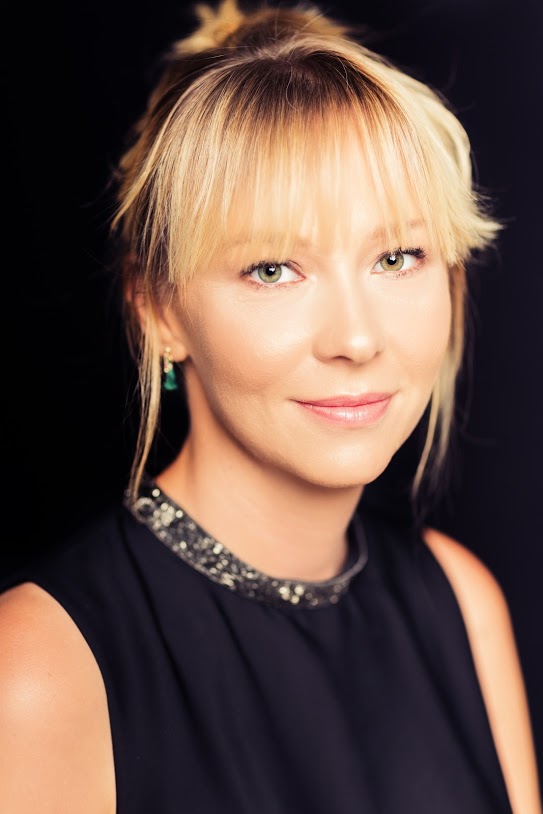 Aleksandra Przegalińska – PhD in philosophy of artificial intelligence, Assistant Professor at Kozminski University, currently Research Fellow at the Center for Collective Intelligence at Massachusetts Institute of Technology (MIT) in Boston. Recent visiting scholar at The New School for Social Research/ Brown University in New York City (2014). In 2011 Aleksandra worked as the Chairman of Media Regulation Working Party at the Council of European Union in Brussels. As a William J. Fulbright Scholar Aleksandra also majored in Sociology at The New School for Social Research in New York (2012), where she participated in research on identity in virtual reality, with particular emphasis on Second Life.
Aleksandra Przegalińska – PhD in philosophy of artificial intelligence, Assistant Professor at Kozminski University, currently Research Fellow at the Center for Collective Intelligence at Massachusetts Institute of Technology (MIT) in Boston. Recent visiting scholar at The New School for Social Research/ Brown University in New York City (2014). In 2011 Aleksandra worked as the Chairman of Media Regulation Working Party at the Council of European Union in Brussels. As a William J. Fulbright Scholar Aleksandra also majored in Sociology at The New School for Social Research in New York (2012), where she participated in research on identity in virtual reality, with particular emphasis on Second Life.
Aleksandra’s current primary research interest include consequences of introducing artificial intelligence systems to people’s social and professional sphere as well as wearable technologies and human/bot interaction.
Kozmiński University, Management in Netrworked and Digital Societies
MIT Research Fellow, Center for Collective Intelligence
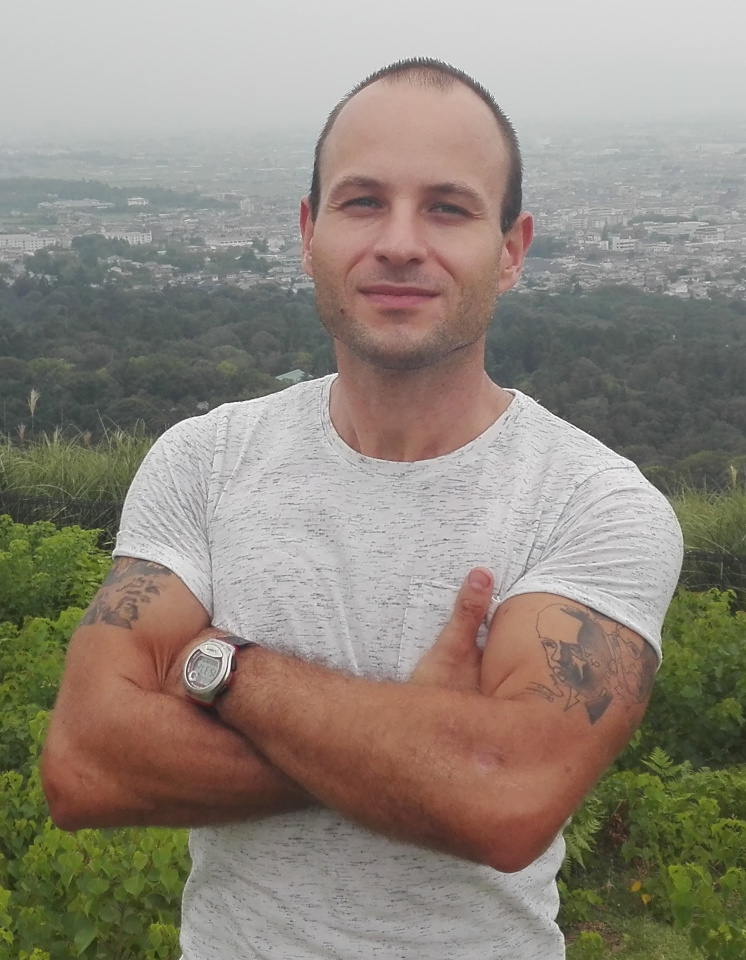
Rafal Urbaniak is interested in applications of formal methods to philosophical and social problems, such as those related to legal applications of probabilistic methods, algorithmic fairness, theories of rationality & belief revision. Nowadays, his main research project pertains to the use of probabilistic methods in juridical fact-finding.
Rafal completed his PhD in Logic and Philosophy of Mathematics in 2008 at the University of Calgary (working with Prof. R. Zach), focusing on the development of mereological foundations of mathematics. Since then, he has been a postdoctoral fellow of the Research Foundation Flanders at the Centre for Logic and Philosophy of Science at Ghent University in Belgium, Long Room Hub Fellow at Trinity College Dublin, Visiting Research Fellow at Banaras Hindu University, and British Academy Fellow at Bristol University. He is now an Associate Professor at the Department of Philosophy, Sociology and Journalism at the University of Gdansk, leading a Sonata Bis research project “Conceptual, formal and practical aspects of forensic and judicial applications of probabilistic tools.” More details and papers are available at http://ugent.academia.edu/RafalUrbaniak.
University of Gdansk
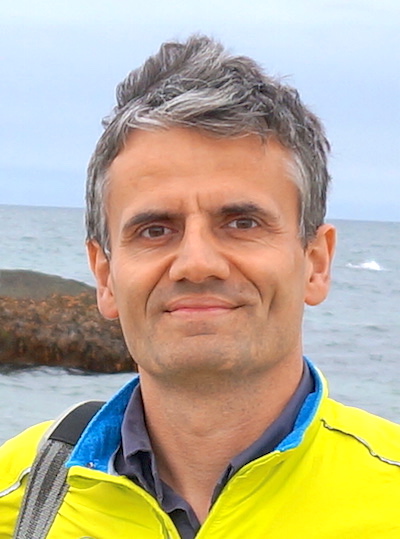 Krzysztof Krawiec is a Professor of Computer Science at Poznan University of Technology, Poland, where he serves as a Deputy Head for Science. His research areas include computer vision and program synthesis, with applications in medicine and software engineering.
Krzysztof Krawiec is a Professor of Computer Science at Poznan University of Technology, Poland, where he serves as a Deputy Head for Science. His research areas include computer vision and program synthesis, with applications in medicine and software engineering.
Prof. Krawiec is the author of over 100 publications on the above and related
topics, and an associate editor of Genetic Programming and Evolvable Machines. He received the Fulbright Senior Advanced Research Award and was a visiting professor at University of California and Massachusetts Institute of Technology.
Sessions
Energy
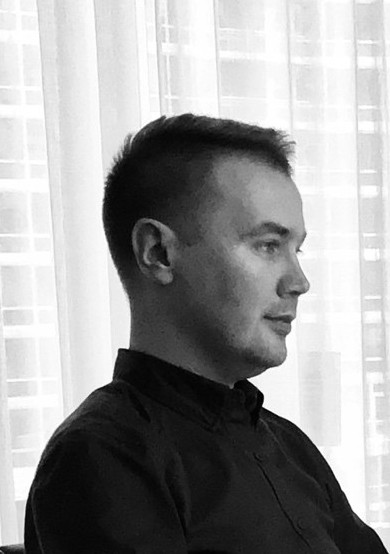
Dr. Krzysztof Fic graduated in Chemical Process Engineering at the Faculty of Chemical Technology, Poznan University of Technology.
His research activities are focused mainly on the electrochemical systems for the energy conversion and storage, in particular on phenomena occurring at the electrode/electrolyte interface.
Krzysztof Fic is the co-author of 44 papers indexed in ISI Master Journal List. His H-index is 14, and citation number approaches 1100 records.
He is also co-author of 11 patents and 19 patent applications.
In 2009-2019, he presented 45 oral communications and 16 posters during national and international conferences, in Europe, Israel, U.S., Mexico, Brazil, Japan, South Korea, Hong Kong, China, Taiwan and Australia. A number of oral communications and posters he has co-authored is even greater.
Krzysztof Fic is an active member of national and international organizations including the Polish Carbon Society, the International Society of Electrochemistry, American Chemical Society, the Electrochemical Society and Material Research Society.
In 2016 he has been selected as a Member for Polish Young Academy at Polish Academy of Sciences.
Faculty of Chemical Technology, Poznan University of Technology
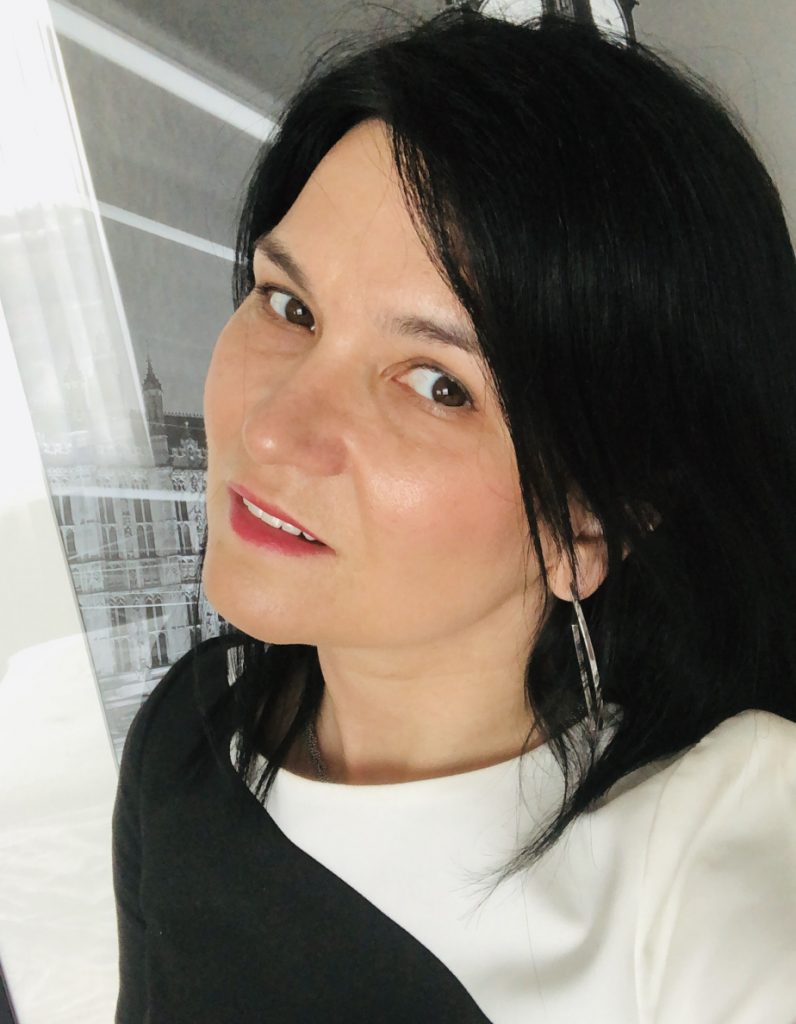 Monika Kwoka, Ph.D., D.Sc. is a Professor at the Silesian University of Technology in Gliwice and the vice-dean of the Faculty of Automatic Control, Electronics and Computer Science. She is a specialist in solid-state electronics, with particular emphasis on nanotechnology of materials for electronics, photovoltaics and healthcare.
Monika Kwoka, Ph.D., D.Sc. is a Professor at the Silesian University of Technology in Gliwice and the vice-dean of the Faculty of Automatic Control, Electronics and Computer Science. She is a specialist in solid-state electronics, with particular emphasis on nanotechnology of materials for electronics, photovoltaics and healthcare.
She obtained master’s degree in Technical Physics – the specialty of Optoelectronics at the Faculty of Mathematics and Physics, then PhD in 2007 in the field of physical sciences, and in 2015 at the Faculty of Automatic Control, Electronics and Computer Science of the Silesian University of Technology in Gliwice, the academic degree of habilitated doctor in the field of technical sciences in Electronics. Since 2017 she is an associate professor at the Silesian University of Technology, coordinating research work on the nanotechnology of electronic materials.
She obtained Scholarship of the Minister of Science and Higher Education for Outstanding Young Scientist in the years 2012-2014, and the 1st Degree Award of the Minister of Science and Higher Education for scientific achievements in habilitation in 2016. In addition, she was awarded twice the 1st Prize in the Nationwide Competition for them. J. Groszkowski under the auspices of the Polish Vacuum Society for the best master thesis and a doctoral dissertation in the field of vacuum (2004 and 2008). She was involved in several international research projects of the European Commission (including GOSPEL Network, EuNetAir Network and Clear-Up, in which she was one of the main contractors as well as managing and coordinating some of the Project task). She has been a leader of few national research projects, including the Ministry of Development ( InTechFun project as part of OP IE – contractor for 3 research packages), National Science Center, and Ministry of Science and Higher Education. Most of the above mentioned projects included advanced research issues with relevant practical aspects, mainly in the aspect of applications in environmental monitoring. She has experience and achievements in the field of international scientific cooperation. She cooperated, among others with research centers from Germany (University of Tuebingen), Italy (University of L’Aquila, University of Brescia), Hungary (University of Technology in Budapest) and Turkey (Institute of Technology, Gebze) in the field of research related to nanotechnology of electronic materials in the aspect of their potential applications in photovoltaics and toxic gas sensing. The effect of this cooperation is, among others a series of over a dozen scientific publications in renowned world magazines from the JCR database (Philadelphia List).
She is the vice-chairperson of the Academy of Young Scientists of the Polish Academy of Sciences in the term 2016-2020. In addition, she is a member of the Commission of the Polish Academy of Sciences for the dissemination of science in the period of 2016-2022. In addition, she is a member of the Board of the Polish Vacuum Society, the Chairwoman of the Surface Science Section in the term 2016-2019. She is also the Director of a world-wide scientific conference – International Workshop on Semiconductor Gas Sensors, and she was Guest Editor in the journal Thin Solid Films (Elsevier, Amsterdam) and chairman of cyclic international scientific conferences in the field of microelectronics (SSP Workshops) and sensory (SGS Workshops).
Social media
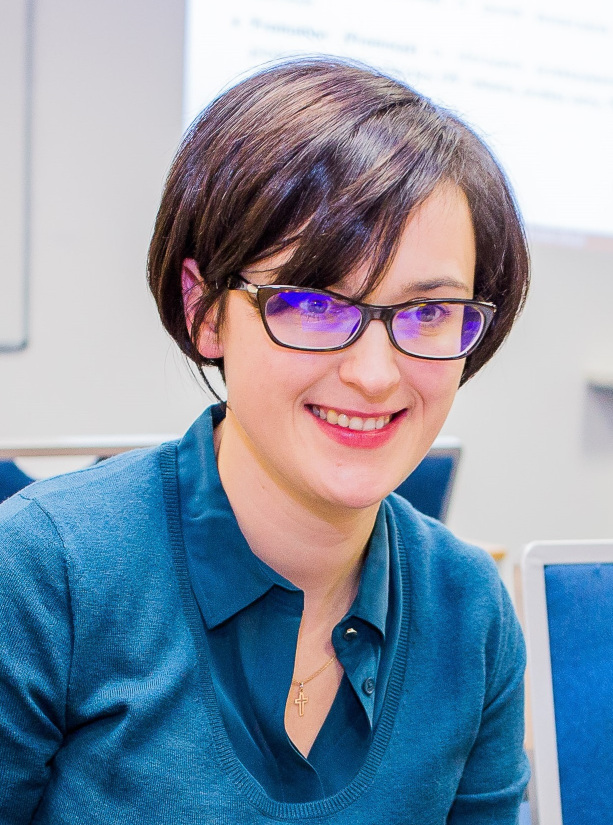 Prof. Dominika Latusek, PhD – management and organization theorist, head of the Department of Management at Kozminski University (Poland), visiting scholar at Institute for Research in Social Sciences at Stanford University (USA). Her research is focused on the issues of trust within and between organizations, on which she published several papers in international journals as well as books and textbooks. She has conducted several field research projects in the startup community in Silicon Valley and in Poland. She served on the Board of National Center for Research and Development in Poland.
Prof. Dominika Latusek, PhD – management and organization theorist, head of the Department of Management at Kozminski University (Poland), visiting scholar at Institute for Research in Social Sciences at Stanford University (USA). Her research is focused on the issues of trust within and between organizations, on which she published several papers in international journals as well as books and textbooks. She has conducted several field research projects in the startup community in Silicon Valley and in Poland. She served on the Board of National Center for Research and Development in Poland.
Kozmiński University
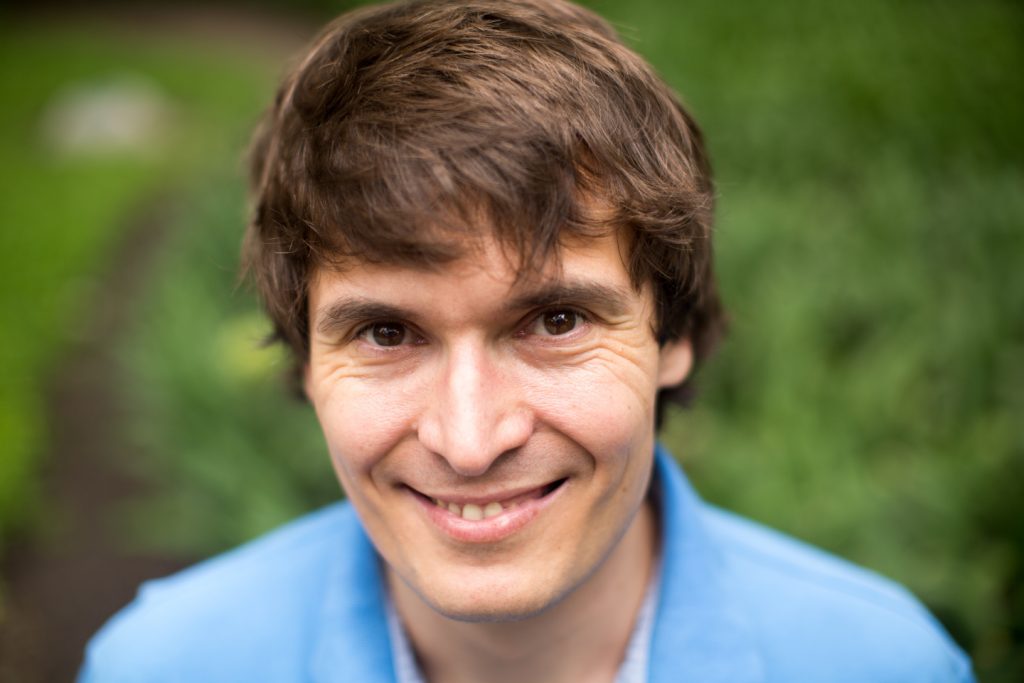
Dariusz Jemielniak is Full Professor of Management at Kozminski University (Poland) where he heads MINDS (Management in Networked and Digital Societies) department. Associate faculty at Berkman-Klein Center for Internet and Society (Harvard) and Wikimedia Foundation Board of Trustees member.
He is the author of “Common Knowledge?” (2014, Stanford University Press, winner of Dorothy Lee Award for Outstanding Scholarship in the Ecology of Culture in 2015, and the Chair of the Polish Academy of Sciences academia award in 2016). He has two upcoming books: “Collaborative Society” (2019, MIT Press, co-authored by A. Przegalinska) and “Thick Big Data” (2020, Oxford University Press).
He had annual appointments at Cornell University (2004-2005), Harvard University (2007, 2011-2012, 2015-2016, 2019-2020), University of California Berkeley (2008), MIT (2015-2016, 2019-2020). His research focuses on open collaboration, peer production, and sharing economy.
Kozmiński University
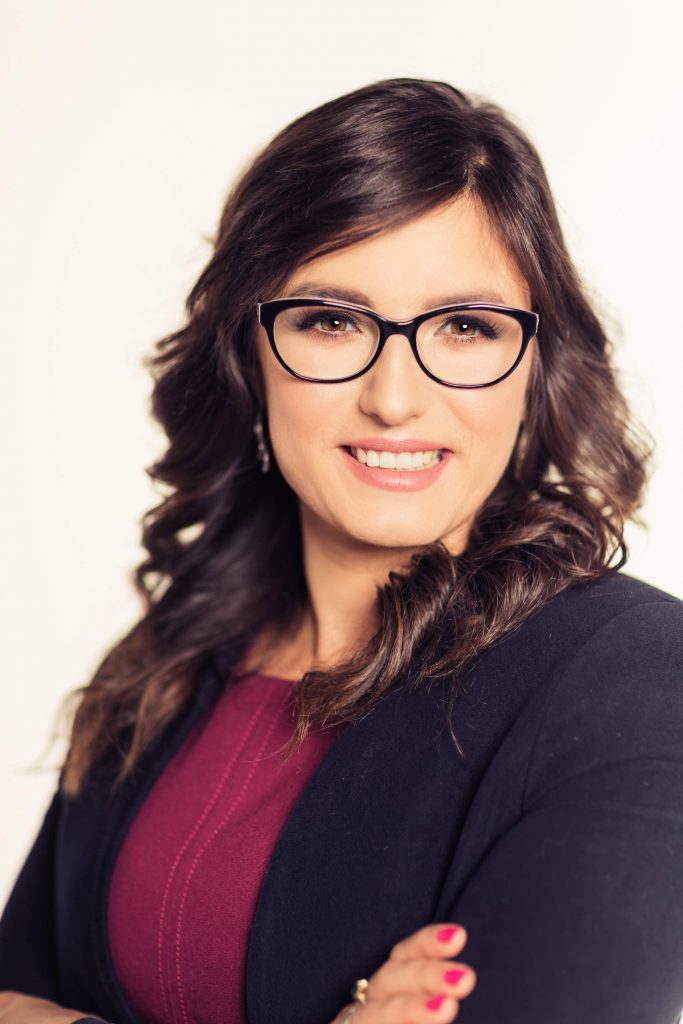 Kaja Prystupa, PhD is the Assistant Professor in Management Department at Koźmiński University. She specializes in the area of management in virtual environment and strategies of dynamic internationalization. In the first area she actively collaborates with research centers from University of Iowa and Turku University. In Poland she works in interdisciplinary projects founded by NCN and NCBiR funds. She is the member of British Academy of Management. I her work, Mrs. Prystupa links the academic background with engagement in business practice though various publications and prelections for instance TEDx.
Kaja Prystupa, PhD is the Assistant Professor in Management Department at Koźmiński University. She specializes in the area of management in virtual environment and strategies of dynamic internationalization. In the first area she actively collaborates with research centers from University of Iowa and Turku University. In Poland she works in interdisciplinary projects founded by NCN and NCBiR funds. She is the member of British Academy of Management. I her work, Mrs. Prystupa links the academic background with engagement in business practice though various publications and prelections for instance TEDx.
Kozmiński University
Information Technology (IT)
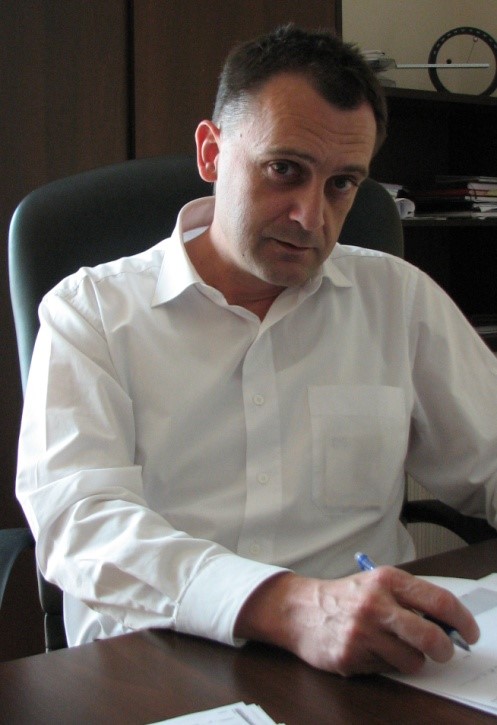 Dr Norbert Meyer is the head of HPC and Data Division at Poznan Supercomputing and Networking Center (PSNC), responsible for HPC, grid, cloud and data infrastructure management, security provisioning and R&D in the mentioned areas. His research interests concern resource management in distributed environments, accounting, data management, technology of development graphical user interfaces and network security, mainly in the aspects of connecting independent, geographically distant domains and European e-Infrastructures’ concepts. He is the author and co-author of 80+ conference papers and articles in international journals, member of programme committees of international ICT conferences. Norbert Meyer is the Polish delegate of e-IRG, chair of the data management task force, member of ESFRI evaluation working groups, member of EOSC Governing Board and EuroHPC INFRAG (Infrastructure Advisory Group). He coordinated EU projects: DORII and RINGRID, and several national projects, as well as Microsoft Innovation Centre and Innovation Centre of PSNC and Huawei. NM is coordinating a national project from the Polish Roadmap of Research Infrastructure focusing on HPC and Data infrastructure.
Dr Norbert Meyer is the head of HPC and Data Division at Poznan Supercomputing and Networking Center (PSNC), responsible for HPC, grid, cloud and data infrastructure management, security provisioning and R&D in the mentioned areas. His research interests concern resource management in distributed environments, accounting, data management, technology of development graphical user interfaces and network security, mainly in the aspects of connecting independent, geographically distant domains and European e-Infrastructures’ concepts. He is the author and co-author of 80+ conference papers and articles in international journals, member of programme committees of international ICT conferences. Norbert Meyer is the Polish delegate of e-IRG, chair of the data management task force, member of ESFRI evaluation working groups, member of EOSC Governing Board and EuroHPC INFRAG (Infrastructure Advisory Group). He coordinated EU projects: DORII and RINGRID, and several national projects, as well as Microsoft Innovation Centre and Innovation Centre of PSNC and Huawei. NM is coordinating a national project from the Polish Roadmap of Research Infrastructure focusing on HPC and Data infrastructure.
Poznan Supercomputing and Networking Center
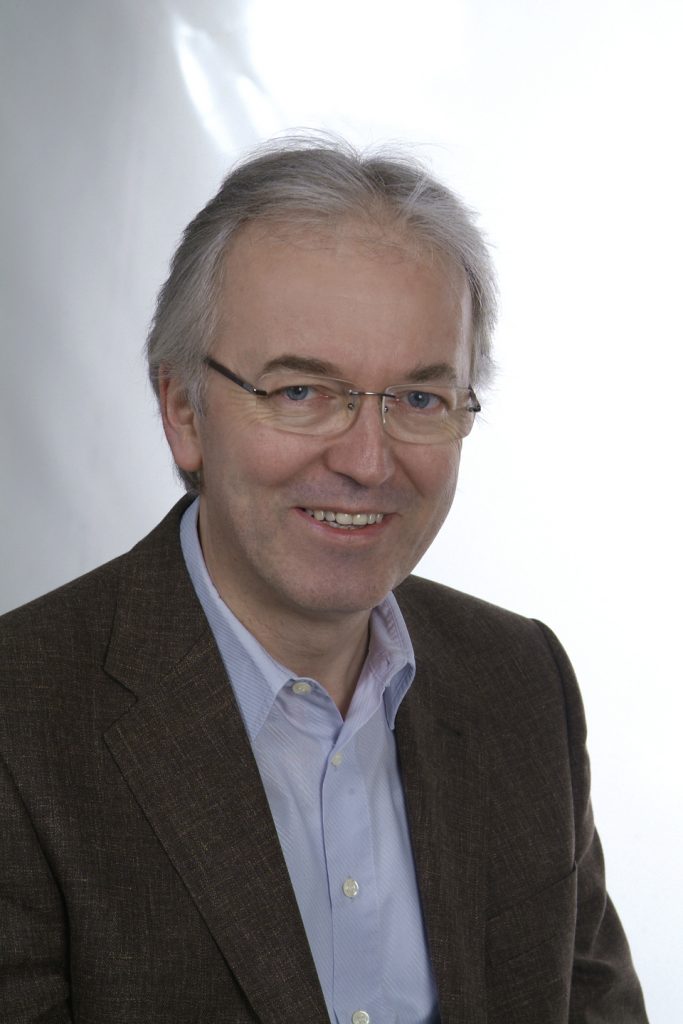
Director of the Institute for Advanced Simulation, Head of Jülich Supercomputing Centre,
Thomas Lippert received his diploma in Theoretical Physics in 1987 from the University of Würzburg. He completed Ph.D. theses in theoretical physics at Wuppertal University on simulations of lattice quantum chromodynamics and at Groningen University in the field of parallel computing with systolic algorithms. He is director of the Jülich Supercomputing Centre at Forschungzentrum Jülich, member of the board of directors of the John von Neumann Institute for Computing (NIC), and he holds the chair for Computational Theoretical Physics at the University of Wuppertal. His research interests include lattice gauge theories, quantum computing, numerical and parallel algorithms, and cluster computing, chair oft he PRACE Council (Partnership of Advanced Computing in Europe).
Academic career
2001 Habilitation, University of Wuppertal
1993-1998 Graduate studies and PhD
PhD in Computer science on systolic Algorithms, University of Groningen
1987-1993 Graduate studies and PhD
PhD in Physics, University of Wuppertal
1983-1987 Undergraduate Studies, Diploma in Physics , University of Würzburg
Academic degrees
2001 Habilitation, University of Wuppertal
1998 PhD, University of Groningen
1993 PhD, University of Wuppertal
1987 Diploma, University of Würzburg
professional career since graduation
2008- Director of the Institute for Advanced Simulation at Forschungszentrum Jülich
2007- Director, Jülich Aachen Reserarch Alliance, JARA HPC
2004- Professor (C4, chaired professor), University of Wuppertal
2004- Head of the Jülich Supercomputing Centre at Forschungszentrum Jülich
2004- Member of the Board of Directors, John von Neumann Institute for Computing
Other
2010- Coordinator, of the IP-Projetcs 1-5, Partnership for Advanced Computing in Europe (PRACE)
2011- Coordinator, EU Exascale-Project Dynamical Exascale Entry Platform (DEEP) and DEEP – Extended Reach (DEEP-ER), DEEP-Extreme Scale technologies (DEEP-EST)
2013- Human Brain Project (EU-Flagship), Director of the High Performance Analytics and Computing (HPAC) Platform
2004- Spokesman of the Helmholtz Programme Supercomputing & Big Data
2008- Member of the SFB/TR 55 „Hadron Physics“, now in the 2nd phase
2015- Member of the Board of Directors of the Gauss Centre for Supercomputing (GCS)
2011- Member of the Manging Board of the ETP4HPC
2015- Member of the consortium, Energy oriented Centre of Excellence
since 06/2018 PRACE Council Chair
Publications:
Michielsen, K., Lippert, T., De Raedt, H., Discrete-Event Simulation Unmasks the Quantum Cheshire Cat, Journal of computational and theoretical nanoscience 14(5), 2268-2283 (2017)
Amunts, K., Ebell, C., Muller, J., Telefont, M., Knoll, A., Lippert, T., The Human Brain Project: Creating a European Research Infrastructure to Decode the Human Brain, Neuron 92(3), 574 – 581 (2016)
Sz. Borsanyi, Z. Fodor, J. Guenther, K.H. Kampert, S. D. Katz, T. Kawanai, T. G. Kovacs, S. W. Mages, A.
Pasztor, F. Pittler, J. Redondo, A. Ringwald, K. K. Szabo, Calculation of the axion mass based on hightemperature lattice quantum chromodynamics. Nature 539, 69-71 (2016). [doi:10.1038/nature20115]
Sz. Borsanyi, S. Durr, Z. Fodor, C. Hoelbling, S. D. Katz, S. Krieg, L. Lellouch, T. Lippert, A. Portelli, K. K.
Szabo, B. C. Toth, Ab initio calculation of the neutron-proton mass difference. Science 347, 1452 (2015). [doi:10.1126/science.1257050]
BigBrain: An Ultrahigh-Resolution 3D Human Brain Model, Amunts, K.; Lepage, C. ; Borgeat, L. ; Mohlberg, H. ; Dickscheid, T. ; Rousseau, M.-E. ; Bludau, S.; Bazin, P.-L. ; Lewis, L. B. ; Oros-Peusquens, A.-M.; Shah, N. J.; Lippert, T.* ; Zilles, K.; Evans, A. C., Washington, DC, Science 340(6139) (2013)
Dürr, S. ; Fodor, Z. ; Hoelbling, C. ; Katz, S. D. ; Krieg, S. ; Kurth, T. ; Lellouch, L. ; Lippert, T. ; Ramos, A. ; Szabó, K., Ratio FK/F Pi in QCD, Physical review / D 81, 054507 (2010)
- Dürr, Z. Fodor, …, T. Lippert et al., Ab Initio Determination of Light Hadron Masses, Science 322(5905) 1224-1227 (2008)
Jan Martinek was obtaining his PhD from Institute of Molecular Physics, Polish Academy of Science in Poznan, Poland. He was then working as a postdoctoral fellow at the Karlsruhe Institute of Technology in Germany and the Tohoku University in Sendai in Japan. During 2008-2015 he had an appointment with Institute of Molecular Physics, PAS in Poznan as an associate professor. He was a visiting professor several times in Japan, Spain, and CRNS France. Since 2015 he is a full professor at the same institute. His works concern mainly spintronics, mesoscopic physics, quantum dots, quantum point contact, strongly correlated systems, superconductivity, Kondo physics, strongly correlated systems, and theory of quantum information and communication. He was awarded with the Marian Smoluchowski prize.
Health care
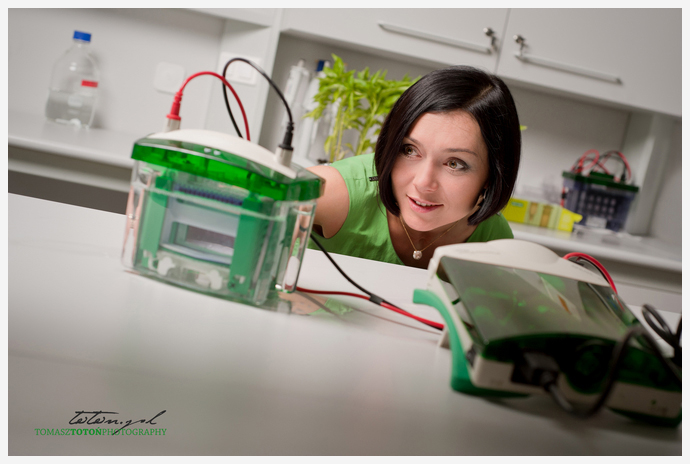
Katarzyna Starowicz-Bubak (PhD) is a neuropharmacologist and a head of the Department of Neurochemistry at the Institute of Pharmacology of the Polish Academy of Sciences in Kraków (www.if-pan.krakow.pl).
Her education includes M.Sc. degree in Biotechnology from the Jagiellonian University (2000), PhD in Pharmacology at the Medical Sciences at the Utrecht University (2005) and Habilitation in Medical Biology at the Faculty of Medicine of the Jagiellonian University Medical College (2013). After receiving a PhD degree, she started a postdoctoral fellowship in Endocannabinoid Research Group under the supervision of prof. Vincenzo Di Marzo. After completing the postdoctoral fellowship, she returned to Poland where she has established and maintained a laboratory focused on understanding of the mechanisms of chronic pain and on the characteristics of endogenous system involved in the transmission of pain stimuli with particular attention to endocannabinoid system. Subsequently, her research interests expanded to include the issue of degenerative joint disease (particularly osteoarthritis, OA) and more recently towards reward and motivation in pain and pain relief.
Please visit http://www.painlab.pl for more details and full description of current research interests.
Institute of Pharmacology PAS
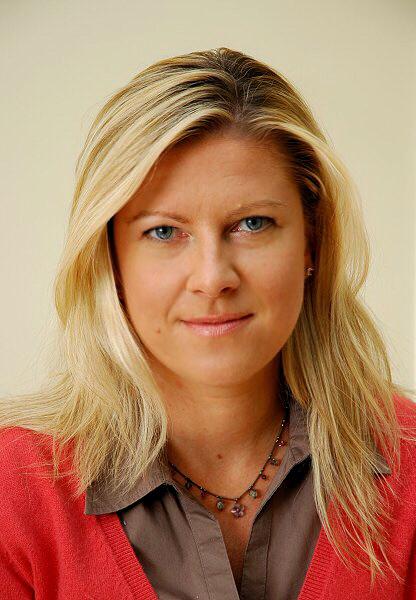 Zofia E. Madeja (PhD Eng.) is a developmental biologist with a scientific background in animal sciences and animal reproduction. She currently works as an Assistant Professor at the Department of Genetics and Animal Breeding of Poznan University of Life Sciences (PULS) (http://jay.up.poznan.pl/GENETYKA/).
Zofia E. Madeja (PhD Eng.) is a developmental biologist with a scientific background in animal sciences and animal reproduction. She currently works as an Assistant Professor at the Department of Genetics and Animal Breeding of Poznan University of Life Sciences (PULS) (http://jay.up.poznan.pl/GENETYKA/).
Her education includes MSc, Eng. degree in Biotechnology with a specialization in animal production and breeding (2000) and PhD in Animal Sciences (2006), both obtained from the Poznan University of Life Sciences. The thesis was dedicated to early embryonic development of cattle embryos. In years 2006-2009 her scientific interests were further broadened as she started working as a Postdoctoral Research scientist at the University of Cambridge, UK (The Gurdon Institute/Wellcome Trust/Cancer Research UK and The Babraham Institute Cambridge). This focused her interests onto wider aspects of developmental biology including, cell lineage specification, signaling, trophoblast function, embryo implantation and stem cell research.
In 2009 she has obtained a Homing grant from the Foundation for Polish Science (FNP) for young scientists returning from abroad, and started working at her home institution (PULS). In 2011 she was granted an Award of the Minister of Science and Higher Education for young scientist, for scientific and academic merit. Her manuscripts published in years 2013 and 2015 were awarded by the Polish Genetic Society. In 2018 Dr Madeja obtained an award from the Chancellor of PULS for publicational activity and scientific achievements.
Since then, she has set up ongoing collaborations with both, polish and foreign institutions and has obtained and supervised research grants from the Ministry of Science and Higher Education and from the National Science Centre, Poland. Presently Dr Madeja is focused on the molecular mechanisms regulating early embryonic development and pluripotency maintenance in non-rodent mammals.
Department of Genetics and Animal Breeding, PULS
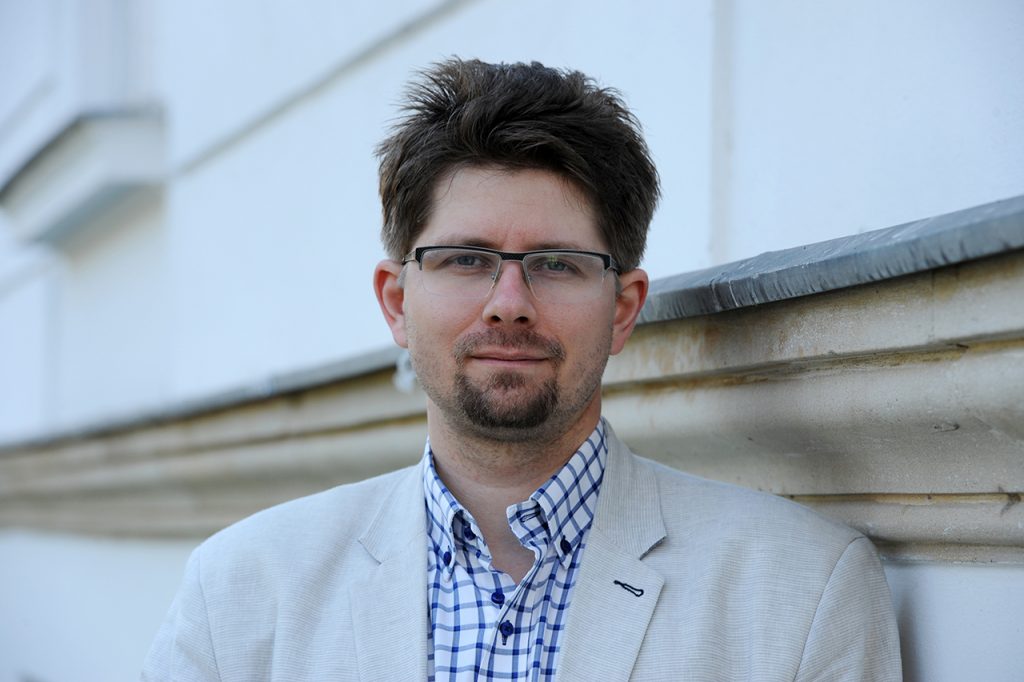
Dr Wojciech Fendler was born in 1982 in Lodz. His research interests expanded during medical studies and culminated in the Primus inter Pares award for the best medical student in Poland. After finishing his medical internship (008) he devoted fully to his scientific pursuits working in Professor’s Mlynarski group on monogenic diabetes. Dr Fendler’s PhD thesis (2011) concerned neonatal diabetes caused by mutations of the proinsulin gene. Expanded, nationwide epidemiological study on the matter resulted in the assembly of the most numerous group of patients with monogenic diabetes worldwide, spurring several publications in top diabetological journals and allowing dr Fendler to obtain his habilitation degree in 2013.
After setting up his independent scientific group, through the actions of the Mentoring programme of the FNP dr Fendler started a collaboration with the Dana-Farber Cancer Institute in Boston and expanded on his interest in circulating microRNAs. This collaboration resulted in publications in several high ranking journals: Science Translational Medicine (2015, 2017), Nature Communications (2017) and eLife (2017).
Right now dr Fendler leads his own research group at the Department of Biostatistics and Translational Medicine funded by the FNP’s First TEAM programme “Predictive biomarkers of radiation toxicity (PBRTox)”.
During his scientific career he obtained several prestigious awards for young researchers including two START scholarships, Medtronic-ISPAD Young Investigator Award and the Wierzuchowski’s lecture-award of Diabetes Poland – the highest award for scientific merit granted by this society.
Medical University of Lodz
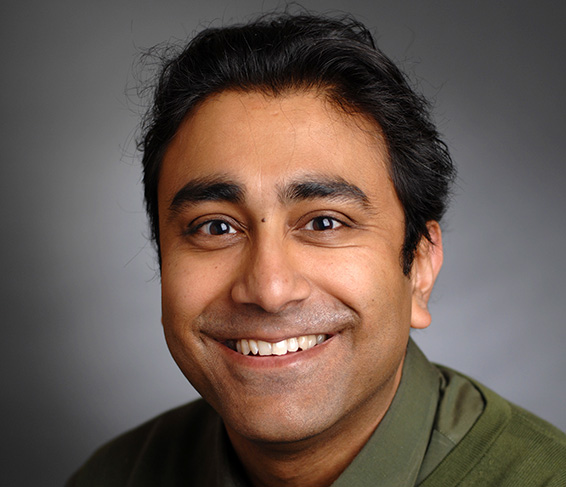
Dipanjan Chowdhury, PhD, is an Associate Professor of Medicine at Harvard Medical School, and Chief of the Division of Radiation and Genomic Stability in the Department of Radiation Oncology at Dana-Farber Cancer Institute and Associate Member of Broad Institute of Harvard and MIT. He is the Brigham &Women’s Hospital Distinguished Chair in Radiation Oncology. He is also an Affiliate Faculty Member of the Department of Biochemistry and Molecular Pharmacology and the Department of Immunology at Harvard Medical School. Dr. Chowdhury’s research focuses on deciphering cellular response to DNA damage, particularly DNA double strand breaks, with the goals of generating strategies for personalized radio and chemotherapy, and countering accidental radiation exposure. His work is supported by the NIH and several foundations, including the American Cancer Society, Ann-Fuller Foundation, Tina Brozman Foundation, Claudia Adams Barr program for Innovative Cancer Research and the Leukemia Lymphoma Society.
Dr. Chowdhury received his Bachelor of Science in Chemistry from St. Xavier’s College, Kolkata; his Master of Science in Biochemistry from Calcutta University, and his Doctor of Philosophy in Molecular Biology from Brandeis University.
Department of Radiation Oncology, Division of Radiation and Genome Stability, Dana-Farber Cancer Institute, Harvard Medical School, Boston, MA, USA
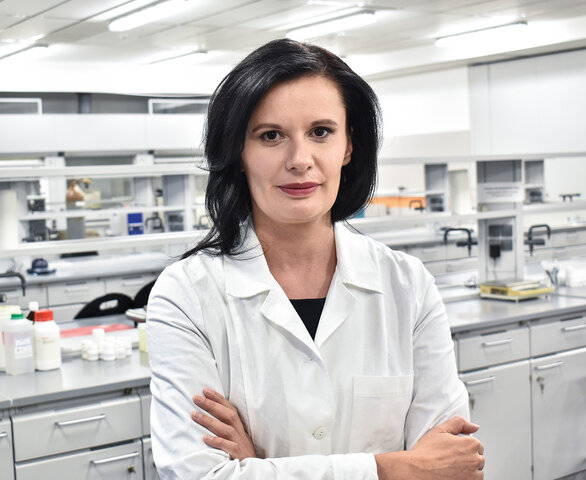 Dr. Joanna Gościańska is an adjunct at the Faculty of Chemistry of Adam Mickiewicz University in Poznań (AMU). She obtained the Master’s degree in 2005 and doctoral degree in 2009 in the field of chemistry. During her PhD studies, she participated in three research internships at Laboratoire Catalyse & Spectrochimie in Caen (France). She received a number of prestigious awards, including MAXIMA CUM LAUDE, the distinction for the Aleksander Zamojski Award, the “Scholarship of the City of Poznań for young researchers”, “Scholarship for Outstanding Young Scientists of the Minister of Science and Higher Education”, team awards of the Rector of AMU for achievements in scientific, didactic and organizational work. In 2018 she became a laureate of the habilitation fellowship entitled: „L’ORÉAL-UNESCO FOR WOMEN IN SCIENCE”. Her principal interest is focused on synthesis, modification and characterization of porous materials (e.g. metal oxides, ordered mesoporous silica and carbons). Importantly, she is passionate to translate the performance of the materials prepared in laboratories into macroscopic real-world applications. In addition to her research, she enjoys teaching. She takes great and sincere pleasure to arouse student curiosity and encourage them to take leaps into the unknown of science. She is co-author of 95 publications and 148 presentations at international and national conferences.
Dr. Joanna Gościańska is an adjunct at the Faculty of Chemistry of Adam Mickiewicz University in Poznań (AMU). She obtained the Master’s degree in 2005 and doctoral degree in 2009 in the field of chemistry. During her PhD studies, she participated in three research internships at Laboratoire Catalyse & Spectrochimie in Caen (France). She received a number of prestigious awards, including MAXIMA CUM LAUDE, the distinction for the Aleksander Zamojski Award, the “Scholarship of the City of Poznań for young researchers”, “Scholarship for Outstanding Young Scientists of the Minister of Science and Higher Education”, team awards of the Rector of AMU for achievements in scientific, didactic and organizational work. In 2018 she became a laureate of the habilitation fellowship entitled: „L’ORÉAL-UNESCO FOR WOMEN IN SCIENCE”. Her principal interest is focused on synthesis, modification and characterization of porous materials (e.g. metal oxides, ordered mesoporous silica and carbons). Importantly, she is passionate to translate the performance of the materials prepared in laboratories into macroscopic real-world applications. In addition to her research, she enjoys teaching. She takes great and sincere pleasure to arouse student curiosity and encourage them to take leaps into the unknown of science. She is co-author of 95 publications and 148 presentations at international and national conferences.
Faculty of Chemistry of Adam Mickiewicz University (AMU) in Poznań
Sessions
Modern materials
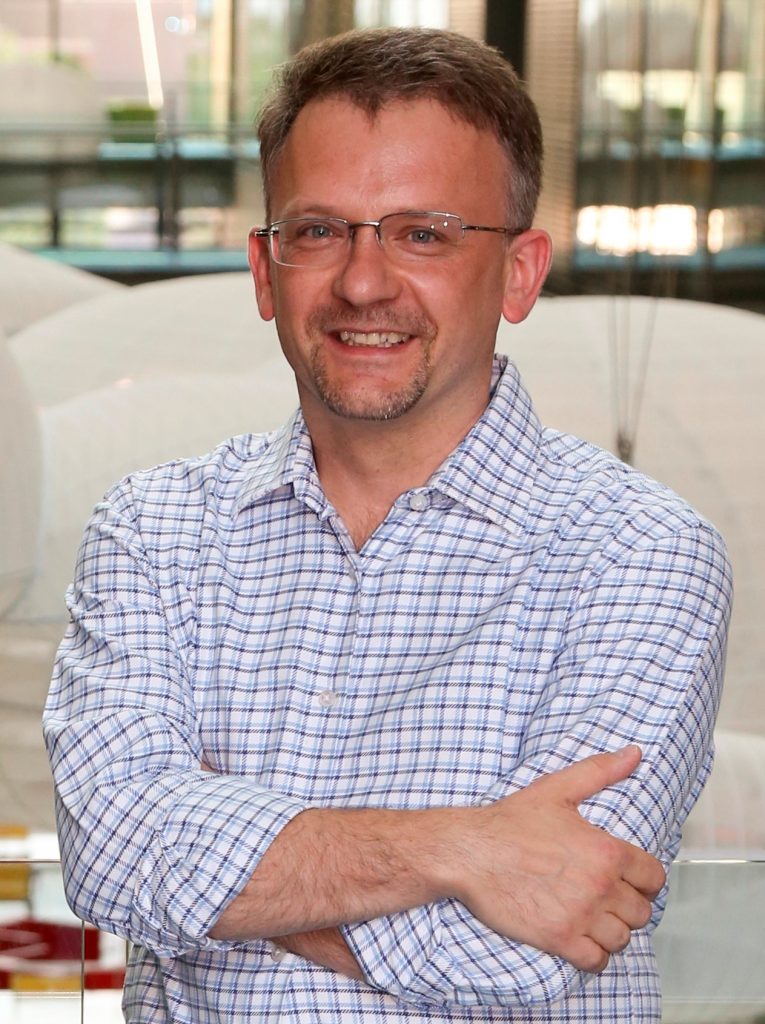 Prof. Tomasz Klimczuk graduated in physics at the Faculty of Applied Physics and Mathematics, Gdansk University of Technology.
Prof. Tomasz Klimczuk graduated in physics at the Faculty of Applied Physics and Mathematics, Gdansk University of Technology.
A breakthrough in his academic career was receiving the Columbus Scholarship from the Foundation for Polish Science (FNP), which gave him the opportunity to work at the University of Princeton (Chemistry Department). Two years of intense scientific work resulted in the habilitation thesis awarded by the Prime Minister of Poland. In 2006, Dr. Klimczuk began his internship as Director’s Funded post-doctoral fellow in Los Alamos National Laboratory (LANL) and three years later he started research at the Institute of Transuranium Elements (Joint Research Centre, European Commission) – in Karlsruhe. Despite working in Germany, he accepted an invitation to participate in the Young Scientists Council at the Ministry of Science and Higher Education. In 2012, he returns to Poland and has been developing a research group at Gdansk University of Technology. He promoted one PhD student and the next three will graduate soon. The two youngest PhD students are supported by the prestigious Diamond Grant scholarship (MNiSW).
His research activities are focused mainly on synthesis and physical properties of new materials: oxides and intermetallic compounds. He reported several new compounds including few superconductors, the latter remain his scientific obsession.
Tomasz Klimczuk is the co-author of more than 150 papers indexed in ISI Master Journal List. His H-index is 30, and citation number approaches 4000 records (Google Scholar).
Faculty of Applied Physics and
Mathematics, Gdańsk University of Technology
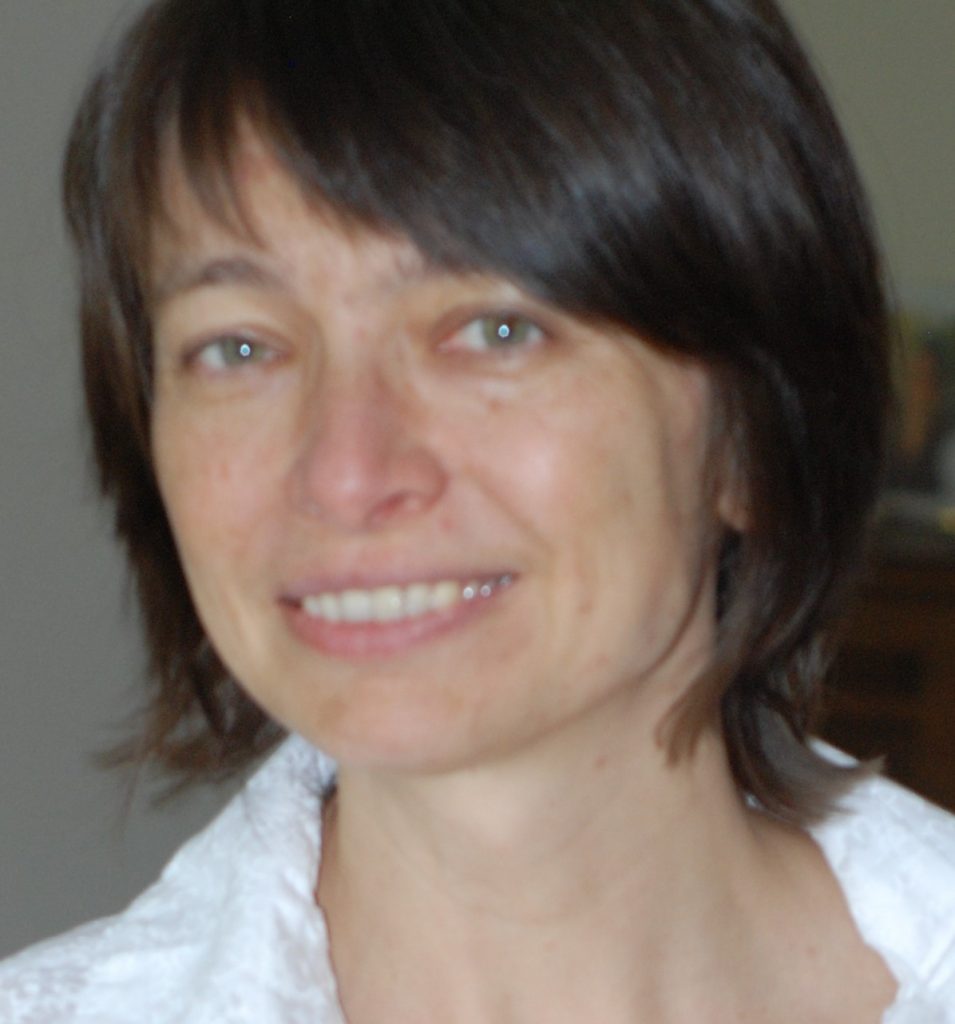 Dorota A. Pawlak is Professor at the Institute of Electronic Materials Technology (ITME) of Warsaw, and at the Chemistry Department, the University of Warsaw, both in Poland. She is currently head of the Department of Functional Materials at ITME and leader of the Laboratory of Materials Technology at the Chemistry Department. Prof. Pawlak’s research is linked to technology development for the manufacturing of new functional materials, such as plasmonic materials, metamaterials, materials with special electromagnetic properties, materials for solar energy conversion. She currently focuses on bottom-up methods such as directional solidification and crystallization, nanoparticles direct doping method and associated research.
Dorota A. Pawlak is Professor at the Institute of Electronic Materials Technology (ITME) of Warsaw, and at the Chemistry Department, the University of Warsaw, both in Poland. She is currently head of the Department of Functional Materials at ITME and leader of the Laboratory of Materials Technology at the Chemistry Department. Prof. Pawlak’s research is linked to technology development for the manufacturing of new functional materials, such as plasmonic materials, metamaterials, materials with special electromagnetic properties, materials for solar energy conversion. She currently focuses on bottom-up methods such as directional solidification and crystallization, nanoparticles direct doping method and associated research.
She is chemist from education with all degrees (MSc, 1999-PhD, 2011-habilitation) made at the Chemistry Department at the University of Warsaw, however currently her work is considering mainly materials science. In 2000-2001 she was a postdoc at the Tohoku University in Japan.
She coordinated various prestigious projects including: (i) The first FP7 Collaborative Project in the NMP Area coordinated by Poland (2008-2012,~5 mln EUR); (ii) US Air Force Office for Scientfic Research funded project; (iii) Era. NET RUS PLUS; (iv) two TEAM projects; (v) MAESTRO and currently she and her consortium will lead a Teaming for Excellence H2020 Project (one out of three in Poland).
Within the Teaming for Excellence programme a Centre of Excellence for nanophotonics, advanced materials, and crystal growth-based technologies – ENSEMBLE3 will be created in Warsaw. The Centre will be created in collaboration with the Institute of Electronic Materials Technology in Warsaw; University of Warsaw, Karlsruhe Institute of Technology in Germany, Sapienza University of Rome in Italy, and CIC nanoGUNE in Spain.
She is a member of the Scientific Board of ITME (2008-2019); a Director in the Director Board of the Metamorphose Virtual Institute for Artificial Electromagnetic Materials and Metamaterials METAMORPHOSE VI AISBL – terms of office: 2007-ongoing, http://www.metamorphose-vi.org/index.php/association/structure; a member of ‘Association-National Committee of Coordinators of EU Projects’. She was the president of Polish Society for Crystal Growth (2013-2016), currently ex-president (2017-2019). DAP is a member of the Scientific Reports (Nature group), and J. Phys. D editorial boards. She is the co-founder of 3C CRYSTALS sp. z o.o – an SME started with members of her research group in 2014.
Institute of Electronic Materials Technology (ITME) of Warsaw
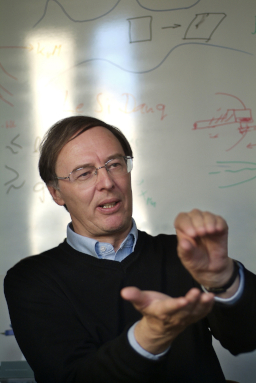
Tomasz Dietl is a Head and an Ordinary Professor at the International Centre for Interfacing Magnetism and Superconductivity with Topological Matter – MagTop, funded by a grant from the Foundation for Polish Science, and carried out at the Institute of Physics, Polish Academy of Sciences in Warsaw. He holds also a part-time Principal Investigator and Professor position at the Advanced Institute for Materials Research, Tohoku University in Sendai.
His current research interests are focused on the development of material systems and device concepts for nanospintronics of topological materials, ferromagnetic and antiferromagnetic semiconductors, and of hybrid metal/semiconductor nanostructures. In 2008 Tomasz Dietl obtained an Advanced Grant (FunDMS) of ERC. He is the author or co-author of over 400 publications, cited over 20 000 times, and resulting in the h-factor over 50 (WoS). Dietl has presented over 200 invited talks at international meetings, including 9 plenary talks at major physics conferences. In 1998 he became a member of the Polish Academy of Sciences; in 2002 he was elected to the International Union of Pure and Applied Physics, Commission on Low Temperature Physics, in 2004 and 2015 he was nominated Fellow of the Institute of Physics, UK and of the American Physical Society (APS), respectively, while in 2009 Dietl was elected to the Polish Academy of Arts and Sciences as well as to the Warsaw Science Society and in 2011 to Academia Europaea. In 2011 he was appointed by the European Commission to the Scientific Council and to the Steering Committee of the European Research Council (ERC) for the term 2011-2014.
He is recipient of Maria Skłodowska-Curie Award in Poland (1997); Alexander von Humboldt Research Award in Germany (2003); Agilent Technologies Europhysics Prize (2005) with David D. Awschalom and Hideo Ohno, for pioneering works that paved the way for the emergence of semiconductor spintronics; Foundation for Polish Science Prize (2006), and the Marian Smoluchowski Medal of the Polish Physical Society (2010). In 2019 Dietl was selected as an Outstanding Referee of APS.
International Centre for Interfacing Magnetism and Superconductivity with Topological Matter
Sessions
Big scientific facilities
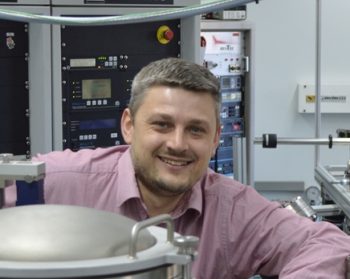 Dr. Piotr Kuświk is a researcher in the Thin Films Department at the Institute of Molecular Physics of the Polish Academy of Sciences. His research interests concern magnetic thin films with perpendicular magnetic anisotropy. In particular, his attention is focused on the fabrication of layered systems as potential materials for various applications (e.g. magnetic sensors, lab-on-chip, magnonic devices). In 2015-2016, he worked as a postdoctoral fellow at the Max-Planck-Institut für Mikrostrukturphysik in Halle. He also participated in many scientific internships at University of Kassel (Germany), Dartmouth College, Hanover (USA), National Institutes of Natural Sciences Institute for Molecular Science, Okazaki (Japan), and CNRS/Thales (France).
Dr. Piotr Kuświk is a researcher in the Thin Films Department at the Institute of Molecular Physics of the Polish Academy of Sciences. His research interests concern magnetic thin films with perpendicular magnetic anisotropy. In particular, his attention is focused on the fabrication of layered systems as potential materials for various applications (e.g. magnetic sensors, lab-on-chip, magnonic devices). In 2015-2016, he worked as a postdoctoral fellow at the Max-Planck-Institut für Mikrostrukturphysik in Halle. He also participated in many scientific internships at University of Kassel (Germany), Dartmouth College, Hanover (USA), National Institutes of Natural Sciences Institute for Molecular Science, Okazaki (Japan), and CNRS/Thales (France).
Between 2007 and 2010, he was awarded the scholarship of the President of the Polish Academy of Sciences, and in the following years he received the prestigious awards: Fellowship for young scientists granted by the city of Poznań, Stefan Pieńkowski award of the Polish Academy of Sciences in the field of Physics and Astronomy, START fellowship from the Foundation for Polish Science, French government scholarships. He is also a member of the Polish Young Academy of the Polish Academy of Sciences and the member of the Committee of Physics of the Polish Academy of Sciences.
He is a co-author of 43 publications and a book chapter. He has published the results of his research in renowned scientific journals such as Physical Review Letters, Physical Review B, Scientific Reports, and Applied Physics Letters. He has been a principal investigator in two research projects and has participated many times in domestic and foreign grants. Currently, he is leading a scientific group founded by the NCN’s SONATA-BIS program.
Institute of Molecular Physics PAS
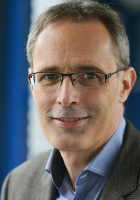
Stefan Eisebitt is a Director at the Max Born Institute for Nonlinear Optics and Short Pulse Spectroscopy in Berlin, Germany and a Professor at the Technische Universität Berlin. His main research interests are transient phenomena in solids on ultrashort temporal and nanometer spatial scale, such as the manipulation of magnetic spin textures by current, spin or laser pulses. In his work, he combines time resolved spectroscopy, scattering and imaging using in particular coherent soft x-rays in combination with short laser pulses. Regarding the session topic “big scientific facilities”, Stefan Eisebitt has pioneered the use of resonant as well as time-resolved x-ray holography at synchrotron radiation sources and free electron x-ray lasers for the use in solid state physics. He has been the chairman of the scientific advisory board of the European XFEL, is a member of advisory bodies of several large scale x-ray facilities and has represented the German synchrotron radiation community as the former chairman of the Committee Research with Synchrotron Radiation.
A full CV and publication information can be found at https://mbi-berlin.de/contact
Max Born Institute for Nonlinear Optics and Short Pulse Spectroscopy
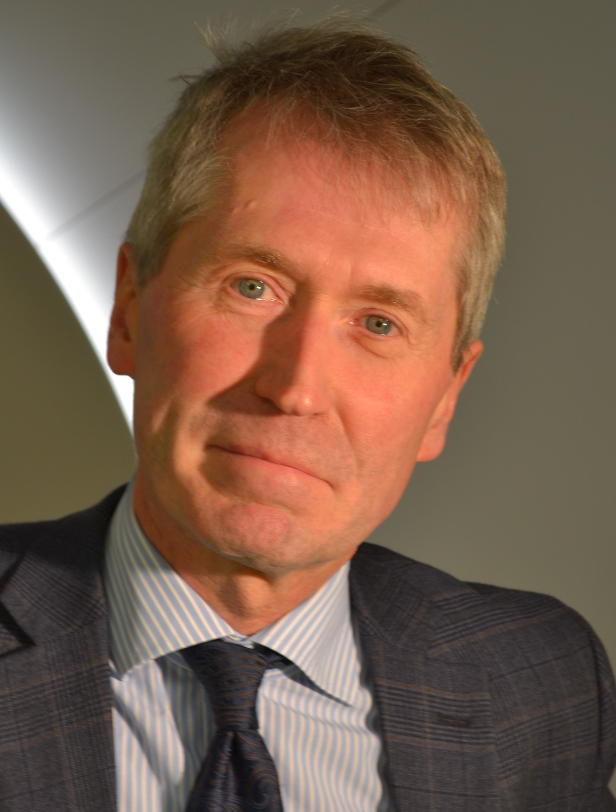
Pawel Olko is a Polish physicist, active in the field of proton radiotherapy, medical physics, dosimetry and microdosimetry. He is Professor of Physics at the Institute of Nuclear Physics Polish Academy of Sciences and the Head of Division of Applied Physics in this institute.
He was graduated in physics from AGH University of Science and Technology, Krakow, Poland. He was a fellow (1986-1989) at the Institute for Medicine Nuclear Research Centre KFA Juelich, Germany, received his Ph.D. in physics from the Institute of Nuclear Physics Krakow in 1990, habilitation in 2003 and the Polish state professorship title in 2010. In 1998-1999 he worked at the International Atomic Energy Agency in Vienna. Between 2005 and 2016 he was a scientific director at the Institute of Nuclear Physics Polish Academy of Sciences (IFJ PAN) and between 2012 and 2016 the director of the Bronowice Cyclotron Centre, the first proton therapy center in Poland.
He is involved in activities of numerous national and international committees and organizations: council member of the European Radiation Dosimetry Group EURADOS, expert of European Commission at Luxemburg, commisioner of the International Commission of Radiation Measurements and Units, ICRU and the member of the advisory committee of the European Network for Light Ion Hadron Therapy, ENLIGHT.
Institute of Nuclear Physics PAS
Poster sessions
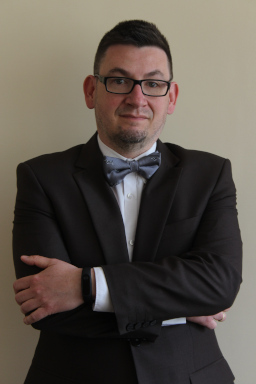 Prof. Przemysław Perlikowski is a Professor of Mechanics at Faculty of Mechanical Engineering of Lodz University of Technology. The main area of his research is nonlinear dynamics. Together with collaborators he developed an hybrid model of church bell, a novel types of tuned mass dampers, a method which enables investigation of a stability of complex dynamical systems and described new phenomena in networks of coupled nonlinear oscillators.
Prof. Przemysław Perlikowski is a Professor of Mechanics at Faculty of Mechanical Engineering of Lodz University of Technology. The main area of his research is nonlinear dynamics. Together with collaborators he developed an hybrid model of church bell, a novel types of tuned mass dampers, a method which enables investigation of a stability of complex dynamical systems and described new phenomena in networks of coupled nonlinear oscillators.
In 2016 he was elected to the Polish Young Academy of the Polish Academy of Science and became the member of the Committee of Mechanics of the Polish Academy of Science. He is coauthor of 70 articles in journals indexed in ISI Master Journal List and his papers where cited 980 timed without self-citations (Scoups). Professor Perlikowski is collaborating with many leading scientific groups from UK, Ecuador, Germany, Russia, India and Italy. He held two post-docs in Humboldt University of Berlin and National University of Singapore. During his scientific career he obtained several awards including Start Fellowship (Foundation for Polish Science), Scholarship for Young Outstanding Scientists (Ministry of Science and High Education of Poland), Award of the Committee of Mechanics of the Polish Academy of Science, reward for highly cited Scientists at Lodz University of Technology in 2018. For details see Prof. Perlikowski webpage: http://www.perlikowski.kdm.p.lodz.pl/
Lodz University of Technology
